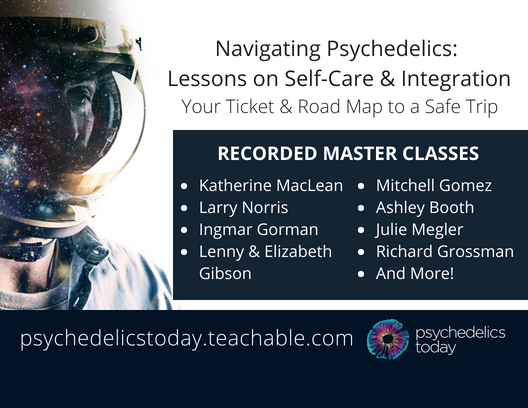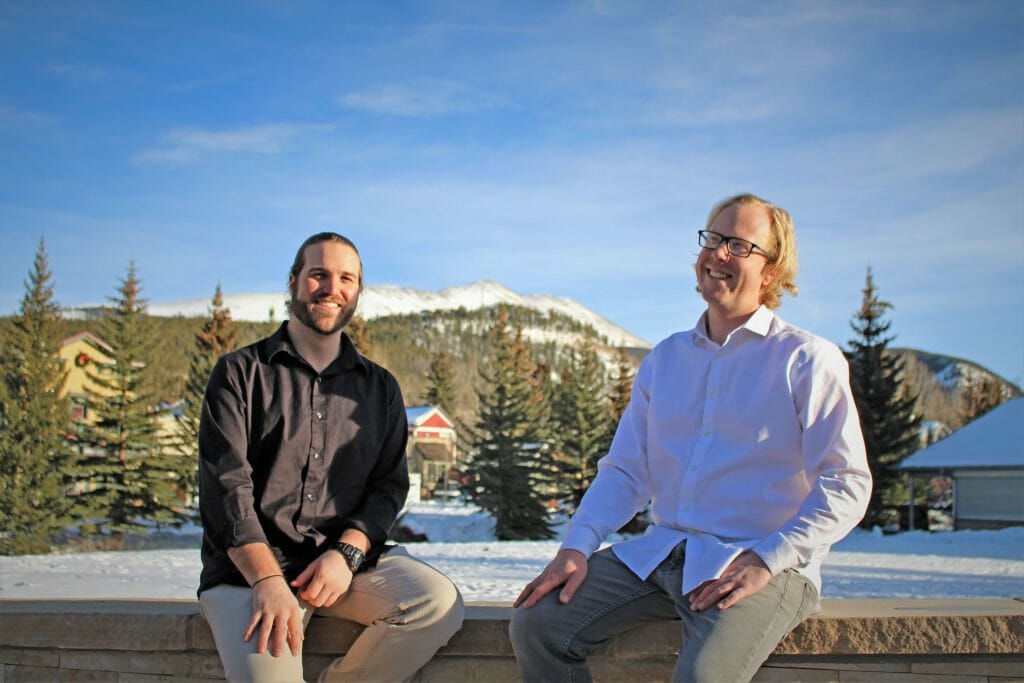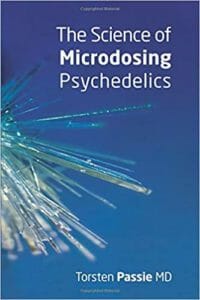In this episode, Joe interviews Dr. Peter Addy, Licensed Mental Health Counselor out of Washington. In the show, they talk about the research and therapeutic use of Salvia.
3 Key Points:
- Salvinorin A is the active molecule that causes the psychedelic experiential reports, although there are at least a dozen unique compounds in the Salvia plant.
- In a recreational setting, Salvia is usually smoked, but in the Mazatec culture, they do not smoke it, they use a sublingual method.
- The clinical applications of Salvia are tricky right now. It's not easy to get funding for psychedelic research.
Support the show
- Patreon
- Leave us a review on iTunes
- Share us with your friends – favorite podcast, etc
- Join our Facebook group - Psychedelics Today group – Find the others and create community.
Navigating Psychedelics
Show Notes
About Peter
- Peter helped found the Yale Psychedelic Speaker Series
- The main goal was to normalize talking about psychedelic research as research
- Peter joined the pharmacology lab for his post doctoral research on Salvia
- The team was mainly studying THC but were also studying Ketamine
- He wanted to bring in MDMA and Psilocybin research
- Peter attended The Institute of Transpersonal Psychology
- As a psychologist, Peter focused heavily on feedback and experience
Transpersonal Psychology
- It all started when Peter stumbled across a dusty book in the library as a Freshman, States of Consciousness by Charles Tart
The book talked a lot about meditation - Joe says he has been practicing non-drug transpersonal states (breathwork) for years
- You can have a psychedelic experience without drugs, and you can also take psychedelics and not have the psychedelic experience at all, it's not about the drug
- “Everyone has an innate desire towards transcending who they are, moving towards wholeness, and personal and societal transformation” - Peter
- “If I'm kind, then people around me are more likely to be kind, it's about the transformation of groups and societies than about having a cool trick” - Peter
Salvia
- “Psychedelic Assisted Psychotherapy is proven to do a lot of really good things, but it's not the only way and it's not necessarily the right way. There are wrong ways to do it, but not one culture owns this experience.” - Peter
- "Having a healthy critique of science in the modern world is helpful because its a series of provisional truths, it's a good tool to get closer to objective reality, but its not perfect, it's all we have so far" - Joe
- Peter says that art is an amazing tool as well
- Verbal language is limiting, he has seen images that can convey an experience way better than words can
- Salvinorin A is the active molecule that causes the psychedelic experiential reports
- There are at least a dozen unique compounds in the Salvia plant
- There was going to be a bill to make Salvia illegal in 2008 or 2009
- Now it's just illegal for minors
Salvia Study
- Peter recruited 30 people who had all used psychedelics
- He used a controlled set, setting and intention
- He used either a Salvia extract or just the unadulterated leaf
- No one in the real world is using Salvinorin A, they are smoking the leaf or using extracts of the leaf
- The participants smoked it when they desired, Peter was not enforcing the smoking
- It was a very relaxed setting
- Once the participants smoked, they then had an experience for 10 minutes, and then he came together with them and just listened to their experience
- 2 people got up and moved, the rest just sat there in the experience
- Interoception (the inner feelings of your body) is the internal form of proprioception (the feeling of your body in space)
- Every time you smoke something it is going to hit you quickly and be over quickly
- By the time you realize what's going on in a Salvia experience, you're already on your way out
- In the Mazatec culture, they do not smoke it, they use a sublingual method
Advice
- The clinical applications of Salvia are tricky right now
- It's not easy to get funding for psychedelic research
- Peter says if you do get funding, attach it to something else
- MDMA research didn't just begin to ‘see what it could help’, PTSD sucks, and there isn't a whole lot that works to treat it, but MDMA does and it just happens to be a type of psychedelic
Links
About Peter
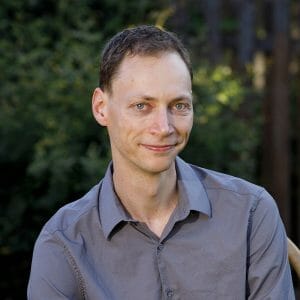
Peter is both a Licensed Mental Health Counselor in Washington and a Licensed Professional Counselor in Oregon. He earned a PhD in Clinical Psychology from Sofia University in 2011, including certification in biofeedback and Process Oriented Psychodrama. There, he studied non-ordinary states of consciousness, holistic and all-encompassing views of a person, and ways that these experiences can transform a person and society. Peter then engaged in post-degree specialty training at Danville State Hospital, Yale University School of Medicine, and the Connecticut Mental Health Center. As faculty at Yale University he engaged in research and training. Some of his clinical training is in mindfulness-based therapies, Motivational Interviewing, and Cognitive Behavioral Therapy. He also discovered a passion for data management and security which he brings with him to his online therapy practice.
 Use code PSYTODAY at Onnit for a discount on all products except fitness equipment
Use code PSYTODAY at Onnit for a discount on all products except fitness equipment Get a 30 day free audible trial at audibletrial.com/psychedelicstoday
Get a 30 day free audible trial at audibletrial.com/psychedelicstoday
In today’s episode, Joe visits Naropa in Boulder, CO to sit down with Rafael Lancelotta and Alan Kooi Davis. Alan is a Clinical Psychology Professor at Ohio State and Rafael is a legal Psychedelic Therapist operating out of Innate Path in Colorado.
3 Key Points:
- Facilitation is a huge problem in the 5-MEO-DMT space. Some people take it without the intention of working on it afterward, they are commonly given too much, and also in a poor context. This recipe of poor facilitation and guidance leads to a lot of challenging experiences and a lot of integration work.
- The feeling of oneness typically arises when taking 5-MEO-DMT. It can be great for some, but for others, it can be extremely overwhelming and harmful when not provided the correct intention, context and tools to work through it.
- Privilege is a huge issue in the psychedelic space. The goal in this space is to make everyone’s voice heard, not just those of privilege.
Support the show
- Patreon
- Leave us a review on iTunes
- Share us with your friends – favorite podcast, etc
- Join our Facebook group - Psychedelics Today group – Find the others and create community.
Navigating Psychedelics
Show Notes
Rafael
- Rafael studied Mental Health Counseling at the University of Wyoming
- He is currently at Innate Path in Lakewood, CO doing Ketamine and Cannabis assisted Psychotherapy
Alan
- Alan is on the Faculty at John’s Hopkins
- He is a Clinical Psychologist
- He is currently doing clinical research on psychoactive substances
5-MEO-DMT
- It is a psychoactive substance that comes from the Sonoran Desert Toad
- It's a fast acting and powerful psychedelic substance that is challenging to predict
- Some have amazing, beautiful and transcendent experiences, but it also has the ability to bring up challenging and dark things to deal with
- It isn't as visual as other psychedelics, it has to deal a lot more with consciousness itself
- “It may feel like being shot right into the center of love, or the center of the universe” - Alan
- DMT can be more visual, while 5-MEO-DMT can be more spiritual, not that they can’t dip into each other
5-MEO-DMT Harms
- Alan did a talk on 5-MEO-DMT at Horizons
- There are a lot of harms when using 5-MEO-DMT
- Both Alan and Rafael have been contacted numerous times about looking for facilitators or about trying to integrate massive and difficult experiences
- An ego death, in the right context, can be transformative, but in the wrong context, can be extremely harmful.
- The facilitators are the problem
- If the facilitators are delivering the medicine in a shamanic practice, and the people using it are coming from a Western mindset, then with goals misaligned, there can be some major issues
- People have these grand, god-like experiences when using psychedelics, then feel like they need to become shamans and facilitate these experiences for others and have literally no clue or education on how to properly care for these people using the Toad
- Joe says facilitators commonly overdose their users because the toad venom is hard to predict potency
- Alan says that the fear response needs to be initiated when extracting the venom from the toad
- He thinks it can come up as a huge problem when using 5-MEO-DMT from a fear-stricken animal
- Alan says there is a lot of reports of feeling abducted by aliens, and it could be related to the fear response from the toad being hunted for its venom
- It's a similar concept to the traumatization of any other animal by the way it is killed and then eating the meat of that traumatized animal
- On average, there is roughly 10-20% of 5-MEO-DMT in the venom
Oneness
- When someone becomes ‘one’ with everything, it takes a lot of detailed integration
- When someone becomes ‘one’ with everything, that would also mean that they experience the suffering of everything around them
- When the rational mind comes back online, if the person does not decide to take action, it can be seriously overwhelming to feel that oneness
- Integration has part to do with the experience but then the other part is everything before it, our family, relationships, job, our personality, etc.
- “Yeah its cool that we are one with the universe, but so is everything else” - Rafael
Power and Privilege
- Privilege means having a voice, but it also means position in society, gender, race etc
- In psychedelics, for so long, it has been so hard to find a voice
- But with this psychedelic renaissance, it has become so much easier to speak up about psychedelic use, research, etc
- The people within the scientific community get put on a pedestal to speak about psychedelic research
- Alan says his goal as someone in the middle of the research role, is to create community, to bring every voice to be heard
- Being connected to psychedelics in anyway, used to mean prosecution
- There are still imbalances that need to be looked at
- The psychedelic renaissance is a chance to look at systemic issues
- We need to determine what our personal values are, and values of the whole community, and whether or not they are aligned
Final Thoughts
- Alan says his goal is to continue having a voice and allowing others’ voices to be heard in this space
- Rafael says his goal is to make this therapy more available to those who can benefit from it and not just for the privileged
Links
About Rafael Lancelotta
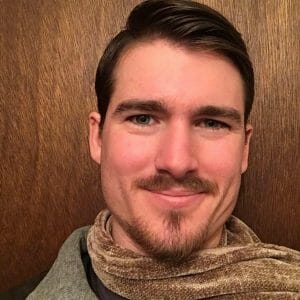
Rafael is a graduate from the University of Wyoming in Mental Health Counseling. He has worked as a wilderness therapy guide with adolescents and young adults experiencing a wide range of emotional and psychological challenges. He has also worked as a counselor at the Behavioral Health Services unit of a psychiatric hospital treating severe and persistent mental illness and medically supervised drug and alcohol detox. He has worked on several research projects studying the epidemiology of 5-MeO-DMT use in the global population and is also the administrator of 5meodmt.org, an online forum dedicated to hosting community discussions on harm reduction, integration, and safe practices around 5-MeO-DMT use. He is interested in the use of psychedelics paired with therapy for increased resiliency, mental health, and openness. He believes that the counseling relationship is essential to deepen, enhance, and actualize the benefits of psychedelic-assisted therapy. He is passionate about finding ways to make psychedelic-assisted therapies available to all those who may benefit from it as well as helping to raise awareness as to responsible clinical applications of psychedelics/entheogens.
About Alan Kooi Davis
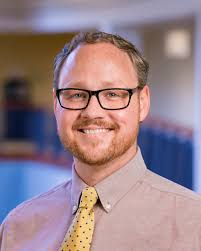 Dr. Alan K Davis is an Assistant Professor of Social Work at The Ohio State University and an Adjunct Assistant Professor in the Psychedelic Research Unit at Johns Hopkins University. Dr. Davis’s clinical experience includes working with people diagnosed with trauma-based psychological problems such as addiction, PTSD, depression, and anxiety. His clinical expertise includes providing evidenced-based treatments such as motivational interviewing, cognitive behavioral therapy, acceptance and commitment therapy, and psilocybin-assisted psychotherapy. Consistent with his clinical interests, his research interests and expertise focus on contributing to the knowledge of and ability to help those suffering with substance use and mental health problems, understanding how to improve clinical outcomes through examining new treatments, and developing ways to conceptualize substance use and mental health problems through a strengths-based approach.
Dr. Alan K Davis is an Assistant Professor of Social Work at The Ohio State University and an Adjunct Assistant Professor in the Psychedelic Research Unit at Johns Hopkins University. Dr. Davis’s clinical experience includes working with people diagnosed with trauma-based psychological problems such as addiction, PTSD, depression, and anxiety. His clinical expertise includes providing evidenced-based treatments such as motivational interviewing, cognitive behavioral therapy, acceptance and commitment therapy, and psilocybin-assisted psychotherapy. Consistent with his clinical interests, his research interests and expertise focus on contributing to the knowledge of and ability to help those suffering with substance use and mental health problems, understanding how to improve clinical outcomes through examining new treatments, and developing ways to conceptualize substance use and mental health problems through a strengths-based approach.
 Use code PSYTODAY at Onnit for a discount on all products except fitness equipment
Use code PSYTODAY at Onnit for a discount on all products except fitness equipment Get a 30 day free audible trial at audibletrial.com/psychedelicstoday
Get a 30 day free audible trial at audibletrial.com/psychedelicstoday
In today’s episode, Joe interviews Mike Jay, Author of the book, Mescaline: A Global History of the First Psychedelic. In the show they discuss Mescaline’s origins and the history of Peyote use.
3 Key Points:
-
Mike Jay is a Cultural Historian and Author whose topics include science, medicine, drugs, madness, literature and radical politics.
-
Mike’s recent book, Mescaline, is a definitive history of mescaline that explores its mind-altering effects across cultures, from ancient America to western modernity.
-
Over time, Peyote has been used by spiritual seekers, by psychologists investigating the secrets of consciousness, artists exploring the creative process, and by psychiatrists.
Support the show
- Patreon
- Leave us a review on iTunes
- Share us with your friends – favorite podcast, etc
- Join our Facebook group - Psychedelics Today group – Find the others and create community.
Navigating Psychedelics
Show Notes
About Mike
- Mike Jay is a freelance writer, an author and cultural historian
- Mike has been interested in Mescaline for a really long time
Indigenous Use
- James Mooney is a crucial figure in the transition from indigenous use of peyote to the more current applications
- The New Deal made religions respected, protected under the First Amendment for freedom of worship
History
- There is a ton of literature before the 60’s on psychedelic use
- It was obvious that if people were interested in psychoactive drugs, they would take it themselves
- Back then, science was much more proactive than it is today, but it is becoming more popular again
Peyote Experience
- It's hard to find an ethical source of Peyote
- Mike says its unpleasant but warm and tingly and euphoric
- By 1970, Mescaline was this legendary substance, but it was hard to find on the streets unless you knew an underground chemist
- On the Erowid site, they have a bulletin that the DEA created about all of the street drug seizures
He wrote a book 20 years ago called Emperors of Dreams - 2CB is not as intense as Mescaline
- Mescaline is a phenethylamine
- It does not cross the blood brain barrier as easily. So you need to take more of it
- It is a body and mind drug
Indigenous Use
- The Comanches were in a reservation in the Wichita mountains
- He was notified by the Comanches on some history
- He went to meet with them, and they told him stories on the history
- Peyote use originated inside of a Tipi
- “The way that we see psychedelics in modern Western culture, is not the only way of thinking about it:” - Mike
Native American Church
- There is an interesting thing that happened between Mexican/South American Shamanic practice and Native American Church
- In the ceremony, the facilitator is made to not ask like a priest, everyone is their own priest
- It is a healing modality for everybody
- The very first peyote experiences in the west encouraged artists to make art
- Salvador Dali was apparently anti-drug use
- The surrealist movement had a number of rules
- Huichol art is a very psychedelic inspired art
The plant
- Peyote is so fast growing, in some places it is growing naturally
- San Pedro is way more sustainable than Peyote
- There is a lot of demand for Peyote currently
- Joe says he thinks that Peyote is not scheduled in Canada
Accounts
- The western story is full of first-person experiencesIts based on the personal
- experiences and visions
- In the indigenous accounts, there are very little stories on experience or personal matters, its more recording on the collective experience
Links
About Mike
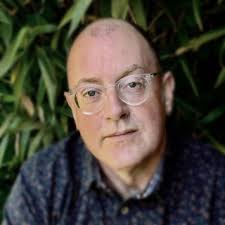
Mike Jay is a leading specialist in the study of drugs across history and cultures. The author of Artificial Paradises, Emperors of Dreams, and The Atmosphere of Heaven, his critical writing on drugs has appeared in many publications, including The Guardian, The Telegraph, and The International Journal of Drug Policy. He sits on the editorial board of the addiction journal Drugs and Alcohol Today and on the board of the Transform Drug Policy Foundation. He lives in England.
 Use code PSYTODAY at Onnit for a discount on all products except fitness equipment
Use code PSYTODAY at Onnit for a discount on all products except fitness equipment Get a 30 day free audible trial at audibletrial.com/psychedelicstoday
Get a 30 day free audible trial at audibletrial.com/psychedelicstoday
In this episode, Joe interviews Dena Justice from the Ecstatic Collective. Dena and Joe talk about Neuro Linguistic Programming and how it is beneficial to use with non-ordinary states of consciousness.
3 Key Points:
- NLP is Neuro Linguistic Programming. Dena Justice is a Lifestyle Design Strategist that uses NLP to help people create their dream, ecstatic life.
- 93% of communication happens at the subconscious level. NLP training focuses on how we use communication tools to help people in non-ordinary states of consciousness.
- Perception is Projection. Our belief of someone else, is a projection of ourselves onto them.
Support the show
- Patreon
- Leave us a review on iTunes
- Share us with your friends – favorite podcast, etc
- Join our Facebook group - Psychedelics Today group – Find the others and create community.
Navigating Psychedelics
Show Notes
About Dena
- Dena grew up with NLP in her life
- NLP is Neuro Linguistic Programming
- “You get to create your reality, what are you choosing consciously?” - Dena
- She became impacted by Tony Robbin’s events, and decided to teach NLP
- NLP is about language and communication and things that are happening subconsciously
- 93% of communication happens at the unconscious level
Neuro Linguistic Programming
- Perception is projection
- “If I have a belief about someone else, that is my projection of myself onto them” - Dena
- The big no-no in NLP is to say things like don't or not
- Say it the way you intend it
- What messages do you want to enforce when in an altered state? You want it to be positive
- “What is someone creating in their reality based on their unconscious communication?” - Dena
- It's important to take NLP and combine it with non-ordinary states because they are more powerful together than the sum of them separately
- The ‘aha’ moment happens because we have neural networks in every single cell in our body
- Resistance is always a sign of a breakthrough
- Virginia Satir is known for translating people’s representational systems
- In the Hierarchy of Ideas, Virginia was all about ‘chunking down’
- When someone says “I'm upset” then you ask “how specifically?”
- On the opposing side, Milton Erickson focuses on abstraction, chunking higher to get to trance
- Dena uses the Milton model of hypnosis to bring people into trance states
NLP Training
- Dena offers NLP training that focuses on how we use communication tools to help people in non-ordinary states of consciousness
- It's so important to understand the 93% of communication that is happening at an unconscious level
- Timeline therapy is a process that utilizes the unconscious mind to get rid of negative emotions such as anger, sadness and guilt
- Every part of her training concludes with NLP coaching
- The Milton model and hypnosis is really beneficial when focusing on its delivery specifically
- Hypnosis is important because its using everyday words but with intention and volition to put people into a trance state
- We reduce resistance in communication when we move up in abstraction
Links
About Dena Justice
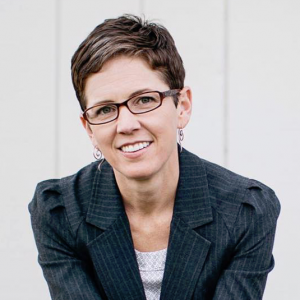
As a master manifester, Dena has created a beautiful life for herself. She been financially responsible since age 15 including putting herself through college, two masters degrees and purchasing her own home in the San Francisco Bay Area. She has made over $1M in her life through a fulfilling career as a facilitator, educator, trainer, mentor and coach working with thousands of people across the country. She loved her career, yet hit a point where she felt empty. Near the top of her career ladder, she was a classic case of a high performer and leader hitting burnout. She chose a powerful pivot out of her J-O-B and into her own business. Now, she helps other high performers who have hit burnout and are scared to admit they’ve hit a plateau or a wall. She helps them get the eff out of their own way and move to the next level to increase their impact so they feel fulfilled and inspired again, as well as helping them create more wealth and the relationships they want in their lives. She helps people experience new levels of success, increase/improve focus and performance, abolish FOMO, evolve communication skills, develop transformational leadership skills, create amazing relationships, increase financial abundance and live life on their own terms.
 Use code PSYTODAY at Onnit for a discount on all products except fitness equipment
Use code PSYTODAY at Onnit for a discount on all products except fitness equipment Get a 30 day free audible trial at audibletrial.com/psychedelicstoday
Get a 30 day free audible trial at audibletrial.com/psychedelicstoday
In this episode, Kyle sits down with Raquel Bennett to recap on the KRIYA Conference. Kyle attended the conference, which is to bring people together with dedication to understanding the better use of Ketamine.
3 Key Points:
- The more recent KRIYA Conference was the last of its kind. The goal is to make information on ketamine more accessible to more people in the future.
- At KRIYA Institute, they believe that there is not one right way to use ketamine, different patients are best served by different treatment strategies.
- Intramuscular ketamine is usually 93% bioavailable, while nasal and lozenge based ketamine is usually only 40% bioavailable. The less variability the better when working with a powerful medicine for therapy.
Support the show
- Patreon
- Leave us a review on iTunes
- Share us with your friends – favorite podcast, etc
- Join our Facebook group - Psychedelics Today group – Find the others and create community.
Navigating Psychedelics
Show Notes
KRIYA
- KRIYA is an international conference focused on ketamine and its therapeutic potential
- The goal of KRIYA is to get people of all different ketamine backgrounds in the same room
- Different people benefit from different things, and different doses and methods matter
- There is a symbiotic relationship between therapeutic and spiritual practice of ketamine
- She wanted to create a place where researchers and clinicians could come together
- This last conference was the last one
- The conference is CME accredited, which means physicians can get units for their education
- Raquel picks people from different backgrounds, therapists who use low dose ketamine for therapy, to those who do full blown spiritual work with ketamine
- Ketamine is a relational medicine - which is about having a relationship with the substance
Ketamine Therapy
- Ketamine Therapy Lessons
- Wisdom Teaching
- A Loving Relationship
- The Medicine
- The medicine is adjunct to the entire process, it's not just about the ketamine, it's about the relationships, the wisdom teaching, etc. And each are powerful on their own, and even more powerful when all combined
- When people are using ketamine in absence from the other components, people are not getting the full effect that they could
- “Ketamine when done correctly, when administered in the right setting, with the correct support, enhances resilience.” - Raquel
- Therapy is an important mechanism to teach coping skills needed in psychotherapy
Highlights of KRIYA
- When Raquel first started running this conference in 2015, the clinicians were afraid to even come, they were afraid to talk about Ketamine
- This past year, there were hundreds of applicants and so much excitement around talking about ketamine
- In 2014, a whole bunch of psychiatrists stood up and said they have been using ketamine for their patients and it worked
- A doctor talked about combining meditation with ketamine to heal substance use disorder
- When ketamine is offered in a structured context, its highly beneficial
- Another doctor talked about using ketamine to treat those who are acutely suicidal
- People who are severely psychiatrically distressed benefit from ketamine treatment
- Another doctor talked about combining ketamine with EMDR to treat patients with PTSD
Bioavailability
- Raquel says she prefers intramuscular ketamine over lozenges
- It's the cheapest way of doing it
- Its super precise, you have a great control of the bioavailability of the ketamine to the patient
- With IM, 93% is bioavailable
- With nasal and lozenge ketamine, usually 40% makes it to the patient's brain, which is a huge range of variability when working with a powerful medicine
Progression
- Clinicians are on the fence for prescribing for at home use
- A doctor talked about 4 different tiers of ketamine experiences related to dosage
- Other doctors talked about measurement tools of pre and post experience ways to take data when administering ketamine to patients
- There is a lot of ketamine use outside of the medical context
- The field is stuck in the question “Should ketamine be allowed to be used by people who aren't psychiatrically fragile?”
- Everything good that is going to come out of ketamine usage and assisted therapy, will come
- It's a slow process, but it is all moving forward
Final Thoughts
- Raquel encourages people to are interested with using ketamine in therapy to get together regionally and learn from each other
- She is thinking about creating a video series, as well as a retreat for ketamine providers
- The KRIYA Conference is over, but the KRIYA Institute isn't going anywhere
- She is looking at ways to get the information out faster and to more people, than to limit it just to conference attendees
Links
About Raquel Bennett
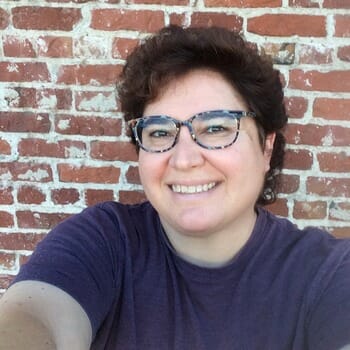
Dr. Bennett is a Post-Doctoral Fellow in Clinical Psychology (PSB 94022544), working under the supervision of Dr. Bravo. Dr. Bennett primarily works with people who are experiencing severe depression, who are on the bipolar spectrum, or who are contemplating suicide. She has been studying the therapeutic properties of ketamine since she first encountered it in 2002. In addition to her clinical work, Dr. Bennett’s practice has evolved to include consultation services for medical professionals who wish to add ketamine services to their offices. She also lectures frequently about therapeutic ketamine. Dr. Bennett is the Founder of KRIYA Institute and the Organizer of the KRIYA Conferences.
 Use code PSYTODAY at Onnit for a discount on all products except fitness equipment
Use code PSYTODAY at Onnit for a discount on all products except fitness equipment Get a 30 day free audible trial at audibletrial.com/psychedelicstoday
Get a 30 day free audible trial at audibletrial.com/psychedelicstoday
In today’s episode, Joe sits down with Andy Frasco, a touring rock musician with the band, Andy Frasco and the UN. In the show, they cover what is it like to be a touring rock musician with drugs so available and how to live more healthfully in the space.
3 Key Points:
- Andy Frasco is a talented, touring music artist a part of the band, Andy Frasco and the UN, as well as a podcast show host. Andy uses psychedelics to help cope with the anxiety that the rock star lifestyle brings.
- Psychedelics open us up to the possibility that everything we know is wrong. Finding truth and clarity for some people is hard, and people resort to alcohol and other harmful behaviors to suppress the painful reality we live in.
- Cocaine and uppers only keep a rock star up for so long. It keeps you awake for the partying, but it suppresses all the stresses of the lifestyle. Psychedelics and meditation can help with the balance needed in a stressful, lifestyle of traveling and fame.
Support the show
- Patreon
- Leave us a review on iTunes
- Share us with your friends – favorite podcast, etc
- Join our Facebook group - Psychedelics Today group – Find the others and create community.
Navigating Psychedelics
Show Notes
Intro
- Joe attended a bunch of his live shows and was able to catch up with Andy in his hotel room while he was in town
- Life is tough for a traveling entertainer, so the healthier they are, the better they are to perform for their audience
- Andy Frasco’s World Saving Podcast
Micro-dosing
- Microdosing is typically 6 weeks on, two weeks off, dosing every 3 days
- 1/10-3/10ths of a gram (of mushrooms) is the typical microdose
- Once you feel it, it's more of a macro-dose
- Paul Stamets has made mushrooms popular
Mushroom Evolution
- Mushrooms did not leave a mark on bone structure, so it's hard to tell if they actually made a difference in human evolution
- Drugs have been around for a long time, and people in the past have definitely used them
- There are studies of mushrooms helping to grow nerve cells and brain neurons back
- We are only 50-100 years in on science
“(Psychedelics) open you up to the possibility that everything you know is wrong.” -Terence McKenna - Joe says he's been to a therapist a bunch of times, and he says he has enjoyed it
- Joe’s main form of therapy has been Breathwork
- His most intense experiences have been just as powerful as his Ayahuasca experience
About Andy
- Andy says he is open about taking psychedelics, he takes mushrooms, he doesn't really use cocaine
- He says he feels more anxious when he isn't taking them than when he is
- He says he gets really anxious on weed now as he gets older
- Psychedelics show us a lot of truths
- “We are all trying to figure out life, it's hard. Psychedelics help us create a better relationship with our mind.” - Andy
- Andy says he has been anxious his whole life
- He has had very scary panic attacks
- He became addicted to sex as a crutch for his anxiety
- He woke up one day, and sex didn't give him the thrill anymore
- Andy started in the music industry because rock stars get the chicks
- Teen years are just about being super insecure about everything
- Shame is a huge influence on our relationships with other people
- “The majority of effects from drug use for people are good.” - a quote from Carl Hart, a Psychology Professor who studies drug use
- Andy's first psychedelic experience was an 8th of mushrooms at 18 years old
Rock Star Lifestyle
- Andy says he used to be really into coke because he just had to stay up for the shows
- But he says he doesn't take anything anymore that feels like speed
- He was coping his exhaustion with drugs and alcohol
- “When you're in a band you're the party for one day of the year in that city.” - Andy
- Life for a rock star can't just be the 2 hour show, the trick is figuring out how to be mindful for the other 14 hours of the day after the party
- The lifestyle is really hard, its very common to use drugs, sex and alcohol to suppress it
- Humans were not designed for this
- Andy has begun using transcendental meditation to help with this lifestyle
- He also mentions having his first DMT experience recently
Links
Use code PSYTODAY at Onnit for discount on all products except fitness equipment
Get a 30 day free trail at Audible
About Andy Frasco
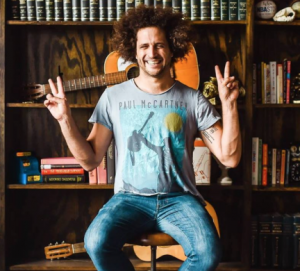
Andy Frasco, a Los Angeles, CA native singer, songwriter, band maestro, entrepreneur, party starter and everyday hustler, tours with his band, “The U.N.” The music has elements of Soul, Funk, Rock and Roots and the shows have been described as orchestrated chaos, an overall great time. Frasco average 200+ dates a year, touring the country dozens of times, creating a loyal following everywhere he goes.
In this episode, Kyle and Joe sit down to cover questions from listeners of the show. They discuss topics that include psychedelic use for exorcisms, cluster headaches, athletic performance, processing grief and more.
3 Key Points:
- There are a few examples where psychedelics are used to increase athletic performance. Psychedelics can also be used to help realign those who are using sports as a form of distraction from internalized issues.
- When eliminating variables for psilocybin consistency in mushrooms for therapeutic use, freeze drying helps. But there are so many variables in mushrooms versus synthesized psilocybin.
- When addressing the sustainability of the Toad, according to the data, there isn't a real difference between 5-MEO-DMT from a toad and synthesized 5-MEO-DMT
Support the show
- Patreon
- Leave us a review on iTunes
- Share us with your friends – favorite podcast, etc
- Join our Facebook group - Psychedelics Today group – Find the others and create community.
Navigating Psychedelics
Show Notes
Kratom Warning
- Joe brings up an issue that was brought up to him by a physician from the Wholeness Center, Dr. Craig Heacock, out of Fort Collins, CO
- Dr. Heacock warns about Kratom
- It is safer than opioids, but it can be physically addictive and getting off of it can be horrible
- Kratom withdrawal closely imitates opioid withdrawal
- The receptor site activity is the same as opioid pills
Using Psychedelics for an Exorcism
- Kyle thinks of shamanic uses for plant medicines, and with the idea of purging and spiritual emergence, working in non-ordinary states can exacerbate these states and maybe help with this kind of work
- Joe and Kyle go into writings from Stan Grof, explaining the physical appearance of those going through LSD psychotherapy or breathwork, and how it assimilates to an ‘exorcism’ of releasing the bad
- The purging during a psychedelic experience may feel evil, or alien
- Joe and Kyle say, do not perform an exorcism, leave it to the trained people
Treating Cluster Headaches with Psychedelics
- Cluster Busters is an organization for the research on cluster headaches
- LSD works for some as well as oxygen treatments work for others
- We know a lot more about migraines than cluster headaches
- The migraine is where neurons in the brain start misfiring and create a firing storm
How can Psilocybin Mushrooms be Standardized in Production for Therapeutic Use?
- Joe says the practical solution is to have a really large amount of psilocybe cubensis, all blended up, and then split in even doses
- There are potency differences between species, strains, etc
- There are so many variances with mushrooms versus synthetic psilocybin
- Freeze drying also promotes close to 0% loss of psilocybin when drying mushrooms
Psychedelics and Athletic Performance
- There may be psychological blocks that are getting in the way of a person reaching the peak performance of their genome
- It could be trauma, or psychological blocks
- Athletic performance could be a distraction from what you're really here to do
- Athletes have a lot of dysfunctional behavior
- Psychedelics may show us our bad behavior and help us align
- Kyle says he had this passion to snowboard and dedicate his life to snowboarding, and then he received a message in journeywork that told him snowboarding is simply a hobby and he needs to focus his life on other things
- “Sports are a great way to cover up our emotions” - Joe
- Kyle mentions tow other episodes that cover similar topics
Ben Eddy
Shane Lemaster
How to get the Ball Rolling on Psychedelic Liberty
- Start a club
- Joe says he’s been incubating a Psychedelic Club in Phoenix
- Clubs are great for harm reduction
Is There a Humane or Conservative Way to Harvest the Toad Without Disrupting its Habitat?
- Joe says yes, roadkill, pick them up off the road
- If you touch a living one, there is a chance you'll be doing harm
- Even touching the toad can transmit harmful fungus to them
- According to the data, there isn't a real difference between 5-MEO-DMT from a toad and synthesized 5-MEO-DMT
How Psychedelics Might help with Processing Grief
- Kyle says when he thinks about grief, he thinks about trauma
- Psychedelics may be really beneficial when treating trauma
- Kyle says he loves breathwork, because it creates the container to process things and even just simply cry
- Kyle recommends a really great book on grieving, The Smell of Rain on Dust: Grief and Praise
by Martin Prechtel
- Our culture does not contain grief very well
- A lot of people internalize it instead of breaking down and letting it go
Links
Use code PSYTODAY at Onnit for discount on all products except fitness equipment
Get a 30 day free trail at Audible
About Kyle
Kyle’s interest in exploring non-ordinary states of consciousness began when he was 16-years-old when he suffered a traumatic snowboarding accident. Waking up after having a near-death experience changed Kyle’s life. Since then, Kyle has earned his B.A. in Transpersonal Psychology, where he studied the healing potential of non-ordinary states of consciousness by exploring shamanism, plant medicine, Holotropic Breathwork, and the roots/benefits of psychedelic psychotherapy. Kyle has co-taught two college-level courses. One of the courses Kyle created as a capstone project, “Stanislav Grof’s Psychology of Extraordinary Experiences,” and the other one which he co-created, “The History of Psychedelics.”
Kyle completed his M.S. in clinical mental health counseling with an emphasis in somatic psychology. Kyle’s clinical background in mental health consists of working with at-risk teenagers in crisis and with individuals experiencing an early-episode of psychosis. Kyle also facilitates Transpersonal Breathwork workshops.
About Joe
Joe studied philosophy in New Hampshire, where he earned his B.A.. After stumbling upon the work of Stanislav Grof during his undergraduate years, Joe began participating in Holotropic Breathwork workshops in Vermont in 2003. Joe helped facilitate Holotropic and Transpersonal Breathwork workshops while he spent his time in New England. He is now working in the software industry as well as hosting a few podcasts. Joe now coordinates Dreamshadow Transpersonal Breathwork workshops, in Breckenridge, Colorado.
In this episode, Kyle sits down with Jac Harrison, a grammy nominated music producer. Kyle and Jac talk about music as therapy, how DMT mimics the near death experience, and how Jac produces music based on frequencies of mystical experiences.
3 Key Points:
- Jac shares his story about his near death experience, and how DMT has been a therapeutic option for him to cope with his crippling anxiety and PTSD.
- Jac is a music producer, who uses frequencies from mystical experiences to produce music. His music helps people with addiction, sleep issues, anxiety, and more.
- Music is not an FDA approved medicine, but if there is music that tricks your mind into thinking you have taken a medicine, then it should be an option for those suffering.
Support the show
- Patreon
- Leave us a review on iTunes
- Share us with your friends – favorite podcast, etc
- Join our Facebook group - Psychedelics Today group – Find the others and create community.
Navigating Psychedelics
Show Notes
About Jac
- In 2008, Jac was newly married with a baby on the way
- He needed a new job, and accepted one with Whole Foods Magazine
- Around 2011, the owner of the company became ill, and gave his company to his daughter, who was awful
- Jac said that he knew something had to change
- He started his music career, went under a lot of stress, and went through a divorce
- Everything started to go okay with his music career, money was pouring in
- His first album was Musicians Collection Project
- He had a ton of anxiety after the divorce, and had high blood pressure
- He took some cold medicine, on top of his blood pressure medicine, totally forgot about it, then decided to have a glass of wine with a friend
- The next thing he knew, he was in an ambulance getting his chest pounded on
- They told him he was in and out all night, and practically died
- After this near death experience, he felt amazing!
- But the feeling of greatness only lasted about 3 weeks, and then his anxiety came back, and it was crippling
A Synchronistic Event
- Jac says he doesn't believe in magic or witchcraft or any woo woo
- For his 39th birthday, he was working a trade show
- He ran around his hotel in Las Vegas, screaming that he felt he was going to die
- He didn't know how, but he could feel it
- Everyone thought he was crazy
- Moments later, was the shooting right outside of his hotel
- It was the Las Vegas shooting
- He does believe in coincidence
- He had this overwhelming feeling that something bad was going to happen, it was his intuition
Understanding the Experience
- After trying to figure out what this all meant, he took a 2000mg bar of chocolate to blast off, trying to relive his near death experience
- He said, there was a lot of frequency, and as a musician, he felt like he could mimic it
- His first album, and first song on the album, Relief, was about his experience when he died
- His music is found at MindToyBox
- Each song he did after that, catalogs the DMT experience he had
- “An old projector TV, I had one for a while, it was great. The light came on and told me I needed to change the bulb. I changed the bulb and saw in a new and clear way forever. That's what DMT is like.” - Jac
- Kyle says that when he attended COSM for the DMT Spirit Molecule release party, Rick Strassman was there and said that the idea that DMT comes out of the pineal gland is just a hypothesis, and people took it and ran with it as truth
Frequency for Healing
- After he smoked DMT, he heard this humming, and so he started humming and recording it as a frequency for the album
- He took opium, and then figured out the frequency that substance performs at
- He wrote music, based on the mathematical equation on how opium works and releases
- He says it has helped others detox off of opium
- Jac cant take mushrooms because he is allergic, so he takes DMT
- Jac worked with a man who had gone through a ton of trauma, he had gone through combat
- He kept reliving his combat trauma when he would try to go asleep
- He smoked DMT, and really relived the experience, and was able to let go of it after that
- “Your mind is a bitch.” - Jac
- “If you can lock onto a memory, and dissociate it with something, and re-associate it with something else, Every time you can go back to that memory,you can relive it in a way that it's tolerable, and get over it.” - Jac
- Jac says without this, he would not be able to function, and he would be institutionalized
- Jac’s music is Alex Grey’s form of art creation
- It is made to go with journeywork experiences
- It is supposed to mimic taking a pill, so you don't need to take the actual pill
- It is supposed to guide people when taking different psychedelics
- His tracks match the frequency of specific psychedelics
Malta Hypogeum
- The Malta Hypogeum, the oracle chamber, is a cave with naturally occurring frequencies
- Raymond Reif is an underestimated person in history
- He beat cancer using frequencies in the 30’s and 40’s
- “If we're not going to someone to get drugs for something that we need drugs for, and solving our problems using plant based medicines, music therapy, and frequencies, we are much better off.” - Jac
- Jac came across psychedelics when trying to treat crippling anxiety
- Kyle is the first person he has told this NDE story to
- Alzheimers is not a neurological problem, it's a perception problem
- Psychedelic medicine should be used for research to treat cognitive health problems, PTSD, alzheimers, etc
- “If the earth gives us something for our body, we should be able to take that at the same time we are able to take modern medicine.” - Jac
- Jac says that he started doing this type of work as more of an Atheist, and after the psychedelic experiences, he says he has become more spiritual
Intuition
- Jac says that his intuition and discernment came after his near death experience
- Kyle says that this happens after mystical experiences, we become more in tune with what is going on around us
- “I believe that we have something in us, that is triggered, when we have a fear of death.” - Jac
Final thoughts
- Jac recommends Relief as the first track for listeners
- He extends himself to people who are heavily anxious, have severe PTSD, or depressed, to come to him, and he will make music for them
- He said that this is not medicine, but if there is music that tricks your mind into thinking you have taken a medicine, then it should be an option for those suffering
Links
About Jac Harrison
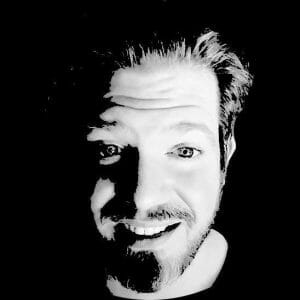
Having spent most of his adolescent life medicated to treat ADD/ADHD, Jac developed a dependency on the medications and could not function without them. When he stopped using them, his anxiety was so bad that he was diagnosed with PTSD in 2009; so he took his love for music with his understanding of mathematics and developed music to help himself get off all the medication. Mind Toy Box is the result of his work.
In this episode, Kyle and Joe sit down to explore psychedelic integration. They cover different frameworks, resources and benefits of integration and coaching services.
3 Key Points:
- Integration is commonly confused as post-session only, but it includes pre-session, self care, and really begins at the point you decide to engage in self-work.
- It is important to remember the GPA framework when determining where you are at in the integration process, G - grounding, P - processing, A - action.
- Psychedelics Today offers many resources to assist with the integration process; Navigating Psychedelics Online Course (and Live Course), Coaching and Integration Calls, and books, Trip Journal and Integration Workbook.
Support the show
- Patreon
- Leave us a review on iTunes
- Share us with your friends – favorite podcast, etc
- Join our Facebook group - Psychedelics Today group – Find the others and create community.
Navigating Psychedelics
Show Notes
Updates
- Kyle will be attending the ACISTE Conference this November
- He is speaking and doing a breakout session with Michelle Hobart
- Kyle is going to present on using technology for support with spiritual emergence
- Kyle and Joe will not be offering any major workshops until spring.
- They will be attending a conference in Exeter UK - Psychedelics and Philosophy
Psychedelic Integration
- Kyle says his near death experience shows up in his life everyday
- Integration is not only post session, it is also pre-session
- Integration, at its root means bringing parts together into wholeness
- Joe says you don't need support to do integration, although it is helpful
- Kyle's analogy of a psychedelic experience as a big hallway with a lot of doors, and a ton of magical stuff, even scary monsters, are coming through the doors and wandering through the halls
- The goal is to realize and say “this is a part of me” and learn to be okay with all of the stuff in the hall
- Self care works until it doesn't, and that is when integration comes in
Integration Framework
- Kyle uses a framework and asks, what is your GPA?
- G - grounding, post session, how are we getting re-connected to ourselves?
- P - processing, once energy feels stable and centered, how can we process the material? It could mean journaling, therapy, body or somatic work, breathwork, yoga, etc.
- A - action, moving it forward, breaking the leanings down into goals of things to work on
- Kyle says that these things do not need to be done in order necessarily, but its a good framework to check in after an experience and see where you're at
- Joe reminds listeners of 'pre-hab', that preparation can make a world of a difference and weigh a lot more than post work in a lot of cases
- “Life is integration, call your mom, pay your rent.” - Joe
- Joe mentions the quote that “the opposite of addiction is connection”
- Climate change can bring up a lot of existential dread, the connection piece, and other topics can be addressed with psychedelic integration
Resources
- The Psychedelics Today, Navigating Psychedelics Course is a great way to learn more about integration
- We offer two books, the Trip Journal and the Integration Workbook
- We also offer Psychedelic Integration coaching calls and services
- You don't need an integration coach all the time, but for someone to just be there helps
- If you have a retreat planned, integration and coaching can really help mitigate the risks
- Integration within the psychedelic community is somewhat understood
- Kyle says he gets tons of emails asking for medicine sessions
- Psychedelic Integration and coaching services do not include medicine or guiding or providing of medicine, its simply pre and post session guidance
- Psychedelics Today does not suggest underground or illegal psychedelic sessions/therapy and makes a significant effort to be ignorant of underground work, there are legal options to choose from
Links
About Kyle
Kyle’s interest in exploring non-ordinary states of consciousness began when he was 16-years-old when he suffered a traumatic snowboarding accident. Waking up after having a near-death experience changed Kyle’s life. Since then, Kyle has earned his B.A. in Transpersonal Psychology, where he studied the healing potential of non-ordinary states of consciousness by exploring shamanism, plant medicine, Holotropic Breathwork, and the roots/benefits of psychedelic psychotherapy. Kyle has co-taught two college-level courses. One of the courses Kyle created as a capstone project, “Stanislav Grof’s Psychology of Extraordinary Experiences,” and the other one which he co-created, “The History of Psychedelics.”
Kyle completed his M.S. in clinical mental health counseling with an emphasis in somatic psychology. Kyle’s clinical background in mental health consists of working with at-risk teenagers in crisis and with individuals experiencing an early-episode of psychosis. Kyle also facilitates Transpersonal Breathwork workshops.
About Joe
Joe studied philosophy in New Hampshire, where he earned his B.A.. After stumbling upon the work of Stanislav Grof during his undergraduate years, Joe began participating in Holotropic Breathwork workshops in Vermont in 2003. Joe helped facilitate Holotropic and Transpersonal Breathwork workshops while he spent his time in New England. He is now working in the software industry as well as hosting a few podcasts. Joe now coordinates Dreamshadow Transpersonal Breathwork workshops, in Breckenridge, Colorado.
In this episode, Joe and Kyle sit down to cover highlights from the Horizons Conference. In the show, they discuss the presentations and topics they heard at the conference.
3 Key Points:
- Joe and Kyle attended Horizons: Perspectives on Psychedelics Conference in NYC, it is a forum that examines the role of psychedelic drugs and plant medicines in science, medicine, culture and spirituality.
- Carl Hart gave a compelling talk; Dispelling the Lies that the Psychedelic Community believes about Drugs. Greater than 80% of the effects of drugs used are positive.
- Another popular topic was on the economics around psychedelics, and discussion on companies trying to monopolize on psychedelics.
Support the show
- Patreon
- Leave us a review on iTunes
- Share us with your friends – favorite podcast, etc
- Join our Facebook group - Psychedelics Today group – Find the others and create community.
Navigating Psychedelics
Show Notes
Horizons
- Kyle mentions he loves to attend because it's a great social event to connect with others interested or involved in the psychedelic field
- Kyle says the videos of the talks from the conference will be released soon
- They presented neuro-imaging data
5-MEO-DMT
- Dr. Alan Davis did a talk on 5-MEO-DMT and its challenges
- People have a hard time letting go into the experience because its so fast and overwhelming
- He talked about a term, reactivation, similar to flashbacks that happen between 1-2 weeks after the experience
- People were reporting it as positive experiences, 80% of people enjoyed the reactivations
- He did say that there were some bad players in the 5-MEO-DMT space
- There is no control in the dosing in underground facilitation
- A lot of people eyeball their dosage in 5-MEO-DMT
- Joe suggests to buy a milligram scale
Carl Hart
- Carl Hart did a talk; Dispelling the Lies that the Psychedelic Community believes about drugs
- Greater than 80% of the effects of drugs used are positive
- PCP is a psychedelic drug, but the psychedelic community chooses not to own it
- Ketamine was derived from PCP
- Hamilton Morris said that no drug is bad, it comes down to the dose and how its being used
- Poison can be a medicine, and medicine can be a poison, it all depends on dose
- No drug should be illegal, drug scheduling should just go away
- Some states are starting to ban private prisons
- Joe says the drug war is the war on race, the war on class, etc
- Joe suggests looking up the Portugal drug law; less overdoses, less HIV, less incarceration, etc
- Kyle mentions that in some cultures they would drink alcohol to get into a trance state and dance around all night and then chill for 3 days afterward because they would all be recovering from the hangover
Talks and Topics
- Shelby and Madison, co founders from Doubleblind Magazine did a talk
- Fiona Misham did a talk on the use of psychedelics for festivals and fun
- She talked about having on-site drug testing facilities and how they heighten safety
- In 2018 in Europe the MDMA contents were tested at 168milligrams
- 1 in 5 substances are mis-sold
- 1 in 20 MDMA samples were long lasting N-ethylpentylone, a drug that keeps you up for 3 days straight
- There was also an Economics panel
- Kyle says it was a heavy and hot debate
- There was a lot of conversation on companies making money on psychedelics
- There was worry from some on Compass Pathways monopolizing on psychedelics
- Kyle says big and fast growth can be dangerous for mental health
- It's possible that these companies will just push for results to pay off the investment than to really take the time to have slow meaningful sessions and include the therapeutic model
- When therapists have more congruence with their client, they get better results
Links
About Kyle
Kyle’s interest in exploring non-ordinary states of consciousness began when he was 16-years-old when he suffered a traumatic snowboarding accident. Waking up after having a near-death experience changed Kyle’s life. Since then, Kyle has earned his B.A. in Transpersonal Psychology, where he studied the healing potential of non-ordinary states of consciousness by exploring shamanism, plant medicine, Holotropic Breathwork, and the roots/benefits of psychedelic psychotherapy. Kyle has co-taught two college-level courses. One of the courses Kyle created as a capstone project, “Stanislav Grof’s Psychology of Extraordinary Experiences,” and the other one which he co-created, “The History of Psychedelics.”
Kyle completed his M.S. in clinical mental health counseling with an emphasis in somatic psychology. Kyle’s clinical background in mental health consists of working with at-risk teenagers in crisis and with individuals experiencing an early-episode of psychosis. Kyle also facilitates Transpersonal Breathwork workshops.
About Joe
Joe studied philosophy in New Hampshire, where he earned his B.A.. After stumbling upon the work of Stanislav Grof during his undergraduate years, Joe began participating in Holotropic Breathwork workshops in Vermont in 2003. Joe helped facilitate Holotropic and Transpersonal Breathwork workshops while he spent his time in New England. He is now working in the software industry as well as hosting a few podcasts. Joe now coordinates Dreamshadow Transpersonal Breathwork workshops, in Breckenridge, Colorado.
In this episode, Joe interviews Cody Swift from the Riverstyx Foundation. In the show, they talk about Peyote and the troubles for Native Americans and their church not having access and preservation of Peyote.
3 Key Points:
- RiverStyx is a small family foundation that funds projects that demonstrate the potential for healing and beauty. RiverStyx has funded the preservation of land to protect the sacred Peyote plant.
- The Portugal Model shows that decriminalization works. Portugal faced unprecedented overdoses and drug abuse, typically with heroine, and when they turned to decriminalization and treatment, overdoses and incarceration dropped significantly to almost none.
- The Native American churches have held onto their ceremonial practices very tightly, and they struggle to find legal and sustainable access to Peyote, their sacred plant medicine.
Support the show
- Patreon
- Leave us a review on iTunes
- Share us with your friends – favorite podcast, etc
- Join our Facebook group - Psychedelics Today group – Find the others and create community.
Navigating Psychedelics
Show Notes
About Cody and RiverStyx Foundation
- RiverStyx is a small family foundation
- Cody’s grandfather was the CEO of UPS, and before his grandmother passed, she put a large share of the stock into a small family foundation
- Cody and his father took their quarter of the Foundation and created RiverStyx
- “How do you use a million and a half dollars a year for remarkable good?” - Cody
- He fell into philanthropy along with the burden/blessing of making decisions to change the world with a lot of money
- He started LEAD (Law Enforcement Assisted Diversion)
- It is a program that aims to help those struggling with addiction rather than punishing them with prison time
The Portugal Model
- In the early 2000’s, Eric Schlosser’s book, Reefer Madness Reefer Madness: Sex, Drugs, and Cheap Labor in the American Black Market eluded to Portugal having decriminalized all drugs
- Portugal faced unprecedented overdoses and drug abuse, typically with heroine
- They realized that they couldn't arrest their country out of the drug addiction problem, so they turned to decriminalization and treatment
- They de-stigmatized treatment and drug users didn't have to feel ashamed and use drugs in the shadows
- This lowered HIV rates to almost nothing
- It was highly successful
- “Not everyone needs drugs, but not everyone should be at risk to go to jail if they get caught with them.” - Joe
- Joe encourages psychedelically inclined folks to look deeper into harm reduction and drug decriminalization
- “Let's provide these people safe access to a clean supply where they can stabilize again” - Cody
- Joe mentions a book by Jeremy Narby, Cosmic Serpent: DNA and the Origins of Knowledge, Cosmic Serpent: DNA and the Origins of Knowledge
- The drug war is causing danger to the plants
- Cody says, if cane syrup was made illegal because it is killing people, we wouldn’t ban the growth of corn, because it is sacred and used for so many other things
- “Jail is one of the biggest problems for mushroom users” - Joe
- Joe mentions that he was a little frustrated that Michael Pollan was able to take mushrooms and not go to jail, but the average person could go to jail
- Cody says that he highly respects Michael Pollan and what he has done for the psychedelic revolution, and that he thinks that Pollan wouldn't want anyone to go to jail for this
- People like Michael Pollan and Tim Ferriss have done a tremendous job securing funding for Psychedelic Research
Peyote
- Native American people had always been close to Cody’s heart
- As a philanthropist, he didn't know where to begin
- There is a myriad of problems facing Native American communities
- About 5 years ago, it just came into consciousness
- He got connected to Sandor of the Native American church
- He learned about ceremony and it became absolutely clear that he had to be a part of it
- It was an unclear path on how to support the community in the beginning, there was no 501C-3, there were no other philanthropists, the community is so large
- “How to support them in the continuance and empowerment of their using of a highly potent and healing substance to treat communities that have suffered so much, that was the key question” - Cody
- Looking at the threat and endangerment of the Peyote plant was the most important part of securing the preservation of this sacred plant
- Synthetic Mescaline is difficult to access and expensive
Ceremony
- It's hard to track the ancient original threats to the traditions
- The Native American churches have held onto the ceremonial practices very tightly
- It's important that white people don't just come in and tweak the ceremony
- The average life expectancy for Native Americans is only in their 50s
- They have gone through so much suffering, and they are very awake, sensitive people that are holding this culture and practice close to them
- Alcoholism is one of the largest problems in Native American communities, and Peyote has shown to be a highly tangible benefit and cure for alcoholism
Preservation
- It has taken over 4 years to begin building these alliances
- Riverstyx and Bronners have been the only sources of funding, they need more
- Through this, they purchased 605 acres of land for peyote preservation in Texas
- 600 acres may not solve the Peyote crisis, but it is a start and has opened the doors to connect with other farmers that has now led to 12,000 acres dedicated to peyote preservation
- This is to return sovereignty and control to the Native
- After the land was purchased, they had a pilgrimage with the Navajo
- Peyote is God to them, it's their connection to the spiritual realm
- Native Americans have resisted acculturation and stuck to their ways, that is their strength
Links
Email: cody@riverstyxfoundation.org
About RiverStyx

RiverStyx Foundation attempts to lessen human suffering caused by misguided social policy and stigma, while advocating enhanced opportunities for healing, growth, and transformation in such areas as drug policy, criminal justice, and end-of-life care. The Riverstyx Foundation believes in the human potential for healing, growth, and transformation. The Riverstyx Foundation works to provide a bridge to the relinquished parts of ourselves, our society, and our ecology, to ease those fears and prejudices by funding projects that demonstrate the potential for healing and beauty, when life is embraced in its fullest expression.
In this episode, Joe sits down with Jordan and Lou from Mycology Now, a company that makes and sells spore syringes for microscopy use. In the show, they talk about the start of Mycology Now, the culture change caused by psychedelics, and personal stories on how psychedelics changed their lives.
3 Key Points:
- Mycology Now is a company that produces premium spores for microscopy use. The goal is to spread knowledge about mycology, one spore at a time.
- We are living in an age of information that has never been experienced before, people have the tools to break the stigma on their own just by educating themselves.
- Psychedelics are becoming a culture change agent, more and more people are becoming accepting of psychedelics, and psychedelics are helping people come together to create positive change.
Support the show
- Patreon
- Leave us a review on iTunes
- Share us with your friends – favorite podcast, etc
- Join our Facebook group - Psychedelics Today group – Find the others and create community.
Navigating Psychedelics
Show Notes
Mycology Now
- Jordan and Lou are co-owners and creators of Mycology Now
- The company runs out of Florida
- Mycology Now is a company that sells spores for microscopy
- They have two locations in Denver
- The mission of the company is to spread spores and knowledge
- Lou shares how his interest in mycology began
- He says it began with his struggle with depression and suicidal tendencies
- Psilocybin had ended up being the only thing that helped with the struggle, the depression was completely erased
- Jordan shares his story
- His mother was in a relationship when he was about 10 years old with an abusive man
- This man abused narcotics, opioids
- He was abusive mentally, physically and emotionally
- He grew up being convinced that he wasn't worthy of love, and he blamed himself
- About 2 years ago, he discovered mushrooms, and was able to go into the painful parts of his childhood and forgive himself and heal from his trauma
- “Although negative things did happen to me, and to my family, I was not the cause of it, and I should not have to carry that around with me.” - Jordan
- He wants to do everything in his power to bring that to the rest of the world
Shattering the Stigma
- One thing that they have noticed about the younger generation is that they are way more open and have way more acceptance of psychedelics and an interest in self care and mental health
- “We are living in an age of information that has never been experienced before, people have the tools to break the stigma on their own just by educating themselves.” - Jordan
- Joe mentions that in Colorado, psychedelics are a bit normalized to have conversation about
- In Florida, the median age is 55, so there is more of a challenge because people that age grew up in the taboo time of psychedelics
The start of Mycology Now
- It organically grew into a website
- Lou says it was an entity that grew on its own
- Joe predicts that in 2020, we are about to see the Psilocybin movement really take off
- Joe brings up the Paul Stamets Stack, which is Cubensis, Lions Mane and Niacin
- There are testimonials about auditory changes that you can measure, you can increase your ability to hear frequencies
- They bring up an example of a deaf man being able to hear the waves of the ocean for the first time after practicing the Stamet’s stack
Psychedelics as a Culture Change agent
- Some people say its the worst time in history, and other people say this is the best time in history
- There is a hunger of more digestible ways of receiving information
- Psychedelics can help us understand the impermanence of things
- Lou brings up that Paul Staments and Dennis McKenna were the catalysts to his understanding of mycology
- Jordan says that his inspiration and influence came from people at music festivals
- People are very open and authentic when on psychedelics
- Meeting real people with real lives who had profound change in their lives because of psychedelics are his major sources of inspiration
Psilocybin for Cancer and Depression
- Lou’s sister was diagnosed with Metastatic breast cancer with a double mastectomy and was diagnosed with depression afterward
- After talking about the health benefits, she took psilocybin, and laid down and disconnected with her body
- Afterward, she was able to come out of it and talk about her ease with death
- The experience felt like death itself, and having felt what death might feel like, she no longer experiences depression about her cancer
Final Fun Fact
- Johns Hopkins psilocybin study on smoking cessation
- 80% of people were abstinent from smoking cigarettes on a 6 month followup
- Those people smoked an average of 19 cigarettes per day for an average of 31 years of their life
Links
About Mycology Now
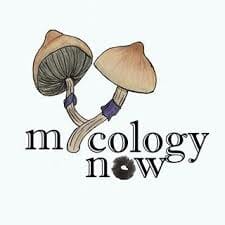
Mycology Now is a humble small business dedicated to spreading awareness. They are a company that makes and sells spore syringes for microscopy use. Their Mushroom Spore prints and syringes speak for themselves; always having a heavy spore count.
In this episode, Kyle joins in conversation with Dr. Daniela Peluso, Cultural Anthropologist and Associate Director at Chacruna. In the show, they discuss guidelines for the awareness of against sexual abuse in Ayahuasca ceremony.
3 Key Points:
- Ayahuasca settings bring together shamans and participants, and with the increasing occurrence of such encounters, there is an alarming rate of incidences where shamans make sexual advances toward participants during or following ceremonies.
- Ayahuasca is a commonly used substance for seducing participants looking for healing, whom then return from their retreats needing additional healing from sexual abuse.
- This guideline reviews some of the key behaviors to look out for and ways to prepare before attending an Ayahuasca retreat to avoid and protect oneself against sexual abuse.
Support the show
- Patreon
- Leave us a review on iTunes
- Share us with your friends – favorite podcast, etc
- Join our Facebook group - Psychedelics Today group – Find the others and create community.
Navigating Psychedelics
Show Notes
Daniela
- Daniela has a PhD in Anthropology
- She was living with Indinenous people in Amazonia
- She conducted field work in the Amazonian regions of Peru over the last two decades, particularly Ese Eja
- She is on the board of Directors at Chacruna's Institute for sexual abuse
- She wrote an article on Ayahuasca and was noticed
Guidelines
- There was an initiative that made a guideline for doing Ayahuasca but it was held back because there are so many different ways ceremony can be performed and it wasn't accurate
- Drinking with friends is wise
- Drinking with experienced women or a couple is another wise move
Abuse mainly happens to women but it does happen to men as well
There is a higher chance for a person to speak up when they have someone they know and trust there with them
Ayahuasca tourism is why sexual abuse is such a problem
When someone doesn't know that touch is out of the norm in ceremony, they might accept it because they were never informed that it's wrong
They may think that being touched sexually is just a part of the ceremony, and it's not
AyaAdvisors and Tripadvisor are both decent resources for reviews on Ayahuasca centers/ceremonial retreats
Unless something goes terribly wrong, you will usually get good reviews
Places also change over time - It's not necessary for healers to touch intimate parts of your body or any area to which you do not consent
There are forms of healing where the body is touched, so it's important for the person to make known what is okay and not okay from the start - Curaciones, Sopladas and Limpiezas do not require you to remove your clothes
If a shaman removes clothing, that may be a warning sign because that is not a part of tradition - Look out for warning signs that a healers intentions with you might be sexual
When healers start to talk about how they aren't married or that they can give you ‘special treatment’ or that sexual or ‘love magic’ is necessary for healing, that is a warning sign
Use common sense and draw the line immediately if anything sexual comes up - Sexual Intercourse between healer and patient during ceremonies or directly after the ceremony is not acceptable in Ayahuasca tradition
- Sexual intercourse with a healer does not give you special power or energy
- Consider cultural differences and local behavioral norms when interacting with native healers, letting go of ethnocentrism Having an understanding of what is culturally normal is important
- Consider cultural differences and local clothing customs
- Protect your personal space, physically and spiritually
Each person has a right to know their body and know what feels right and wrong to them
No means no - Be wary if healers offer psychoactive substances other than those used during ceremonies
- He is a Shaman, not a Saint! There is a lot more “I am a Shaman” these days, where it used to be more of “I am not a Shaman”
Ayahuasca tourism definitely romanticized what being a Shaman really is - If violation occurs, get support
People should speak up as quickly as they are able to, vocally or physically
“There is no need to suffer in silence” - Daniela - Beware of what might appear to be consensual sex
It has a lot to do with having the same form of communication, trust, and power dynamics - Beware of getting romantically involved
- If you are aware of or witness sexual abuse, speak up
Final Thoughts
“Individuals have to accept that Ayahuasca has become a business and an industry as much as it is a spiritual practice, and that it includes the trappings of capitalism like exploitation and inequality.” - Daniela
Links
Email: d.peluso@kent.ac.uk
About Daniela Peluso, PhD
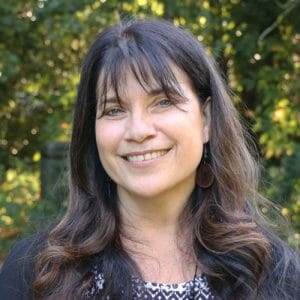
Daniela Peluso is a cultural anthropologist whose current research focuses on indigenous Amazonian communities. She has worked over the last two decades in Lowland South America, mostly with communities in in the Peruvian and Bolivian Amazon. She is actively involved in various local efforts on issues relating to health, gender, indigenous urbanization and land-rights and works in close collaboration with indigenous and local organizations as reflected in her publications. She also specializes on the anthropology of finance. She received her PhD in 2003 from Columbia University and is a senior lecturer in social anthropology at the University of Kent. She is an Associate Director of the Chacruna Institute for Psychedelic Plant Medicines and on the board of the Society of Lowland South America (SALSA) and People and Plants International (PPI).
In this episode, Kyle interviews Laura Northrup, Marriage and Relationship Somatic Psychotherapist and creator of the podcast, Inside Eyes; an audio series about people using psychedelics to heal from sexual trauma.
www.psychedelicstoday.com
In this episode, Kyle and Joe interview Ben Sessa, a Consultant Psychiatrist. Ben comes on the show to talk about preliminary results from the first ever, MDMA assisted therapy for alcohol use disorder (AUD).
3 Key Points:
- Ben Sessa plays a role in leading the current MDMA assisted therapy study for alcohol use disorder, and shares preliminary results.
- In the current stage, out of the first 12 patients, 2 have turned back to drinking, 5 have stayed completely dry and another 5 who have had a drink or two but have not relapsed back to their typical levels of consumption.
- Most people with a long term substance addiction have a history of trauma. MDMA can help people feel safe, in order to work through and heal trauma.
Support the show
- Patreon
- Leave us a review on iTunes
- Share us with your friends – favorite podcast, etc
- Join our Facebook group - Psychedelics Today group – Find the others and create community.
Navigating Psychedelics
Trip Journal Integration Workbook


Show Notes
Preliminary Results
- They had 13 people in the study, and they took data on 4 people
- The first caveat in these results is that there was no blinding and no placebo in this study
- There is no way to tell that it was solely the drug that resulted in the effects
- In terms of tolerability, everyone preferred it to other treatment, there were no bad reactions to the MDMA, there were no negative reactions, it was a total success in terms of tolerability
- In the current stage, out of the first 12 patients, 2 have turned back to drinking, 5 have stayed completely dry and another 5 who have had a drink or two but have not relapsed back to their typical levels of consumption
- They did a similar study previous to this one except without the MDMA and they had 11 patients, 9 of them went back to their full level of consumption
- They chose alcohol use disorder because it's so difficult to treat
- All patients are recruits from local drug and alcohol services
- Ben picks them up after they have detoxed, after they have been cured of the physical dependence, but when they have yet to be cured of the psychological dependence
- They receive 2 dosing days within their 8 week therapy (usually weeks 3 and 6)
- They do 125mg and then half that size dose 2 hours later, which sustains the high
- Ben mentions that recruitment is difficult, a lot of people have a drinking problem, but they can't have patients that are depressed, suicidal, pregnant, epileptic, etc.
Future for the Study
- Up until next March, they are continuing to take in new patients for the study to have more data
- The next step is to have a randomized control study
- This current study is sponsored by Imperial College of London
- It's not a MAPS sponsored study, it's the first non MAPS, MDMA study
- The main papers, with all the data are over a year and a half away from publishing
Addiction and Trauma
- “MDMA addiction is as rare as a hen with teeth.” - Ben
- “Most people with a long term substance addiction have a history of trauma.” - Ben
- Trauma and PTSD is highly treatment resistant
- There are certain drugs that inhibit fear response, such as alcohol, heroin, etc
- They make you forget the pain but you can't work with them and do therapy with them, with MDMA you can
- MDMA can help people feel safe, in order to work through and heal trauma
- “We are all the products of our attachment relationships.” - Ben
Breaking Convention
- This past year was the 5th one
- There were 1300 attendees from all over the world
- What's wonderful about Breaking Convention is how multidisciplinary it is
- There's the guy in the gray suit in one room talking about high level neuroscience and a hippie with dreads in the other room talking about the spirits that live in the Salvia leaves
- Ben says they work really hard to make that balance work
- There's a lot of debate and conflict in the psychedelic movement right now,
- Breaking Convention is very important for creating space for this debate
Looking ahead
- Ben is looking into opening a clinic
- He mentions academia is not his area of study, he is a clinician, but this research is an excuse to treat patients
Links
About Ben Sessa
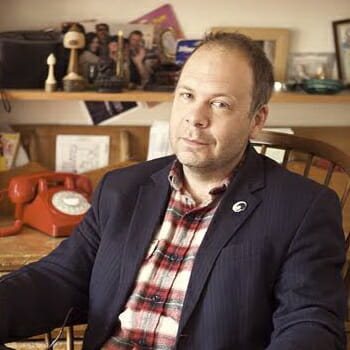
Ben Sessa is a consultant psychiatrist in adult addictions, working part-time at Addaction in Weston-Super-Mare and is senior research fellow at Bristol, Cardiff and Imperial College London Universities, where he is currently taking time off clinical medical practice to study towards a PhD in MDMA Psychotherapy. He has specialist training as a child and adolescent psychiatrist and is interested in the developmental trajectory from child maltreatment to adult mental health disorders. Dr Sessa’s joint interests in psychotherapy, pharmacology and trauma have lead him towards researching the subject of drug-assisted psychotherapy using psychedelic adjuncts. He is the author of two books exploring psychedelic medicine; The Psychedelic Renaissance (2012) and To Fathom Hell or Soar Angelic (2015) and is currently conducting research with Imperial College London and Cardiff universities studying the potential role for MDMA-assisted therapy for the treatment of PTSD and alcohol dependence syndrome. Dr Sessa is outspoken on lobbying for change in the current system by which drugs are classified in the UK, believing a more progressive policy of regulation would reduce the harms of recreational drug use. He is a co-founder and director of the UK’s Breaking Convention conference.
In this episode, Joe and Kyle interview Rachel Anderson and James Franzo, founders of the EDELIC Center for Ethnobotanicals. In the show, they talk about the benefits of creating a healing practice using botanicals such as Kratom and the need to decriminalize all plants.
3 Key Points:
- EDELIC is a non-profit in Eugene, Oregon that began as a public lending library that has grown to a community of information, events, and conservatory of psychoactive botanicals.
- Kratom can sometimes get a bad rep, commonly thought of as an opioid. But Kratom is not an opioid, it just affects the opioid receptors in the brain, respiration never changes, and it's actually in the same category as the coffee family, so it gives a boost of energy.
- There is not an economic incentive that puts the botanical research on the same level as synthetic research. At EDELIC, the goal is to create scientific evidence that validates citizen-led research, authentic scientific information, and create a scientifically valid, open science and praxis oriented, non-commodified access pathway, to and from the direct human & botanicals/fungi relationship while protecting the bounty emerging from therein.
Support the show
- Patreon
- Leave us a review on iTunes
- Share us with your friends – favorite podcast, etc
- Join our Facebook group - Psychedelics Today group – Find the others and create community.
Navigating Psychedelics
Show Notes
EDELIC
- EDELIC is a non-profit in Eugene Oregon that has been operating for 4 years
- They started as a public lending library
- They put on a weekly discussion group and host events
- What started as a library, grew to a conservatory to protect plants, and now includes research
Conservatory
- They have 15-16 psychoactive species, such as Salvia, Kratom, San-Pedro, etc.
- Volunteers are able to help out in the garden
- They are interested in growing the conservatory to have different climates that cater to each individual plant
Events
- They have done both a CBD event and Kratom event, and have brought the plants from the conservatory
- The events that they have been holding are based on community desire for more information on those plants
Kratom
- Kratom has the potential to prevent deaths in the opioid crisis with less initial stigma than ibogaine, psilocybin, etc
- The symptoms of withdrawal from Kratom are similar to withdrawal from coffee
- Kratom is a plant and the benefits can be harnessed along with a practice
- when habits are formed, a person doesn't need to have a dependency on the Kratom
- Kyle mentions that creating a practice is a foreign concept to some people, they think their healing comes solely from the substance and not the practice
- The best way to take it is in tea form, and let all the intelligence centers of the body take the medicine in
- James says he hears news and TED Talks on Kratom tinctures and extracts, and he thinks that leans Kratom toward that abusive behavior again
- Using it continuously and re-upping on the go makes it less of a practice
- “In all cases, were encouraging folks to focus on the whole botanical, letting the intelligence of the body to form the relationship with the plant will keep you safer than going in the other direction” - James
- The goal is to use the Kratom to take away the pain to a point where the individual has more energy and to say, “what can I do to improve my health in this moment?”
- That may look less like taking 100% of the pain away and taking it away just enough to have the energy to create a practice of healing without the reliance on another substance
- Its generally safe, it has a predictable response in individuals, and it is legal
- Kratom is not an opioid, it just effects the opioid receptors in the brain, respiration never changes, and its in the same category as the coffee family, so it gives a boost of energy
- “Botanicals, integration practice, and realizing our internal intelligence centers can really influence and inform our decision making process” - James
- Kratom can be tested, and there are industry standards similar to how cannabis is tested
- Kratom is highly unregulated and you are taking a risk when not testing it for quality
Decriminalize Nature
- In 1994, the World Trade Organization introduced this piece of legislation that says in US Patent Law, minor scientific alterations to natural botanical plants can be patented
- Patent law protects scientific adaptations to botanicals, and therefore, the US claimed that third world countries owe us royalties for agricultural products
- In Canada, they said to patent an indigenous plant is to steal from the third world country, and i n that case, the US owes other countries over 300 million and in pharmaceuticals, billions
- That is why in the US, there is an urge to make money on synthetic versions of these plants
- There is not an economic incentive that puts the botanical research on the same level as the synthetic research
- The WTO does not recognize technology or innovations by farmers, artisans or grassroots innovators that happen in a grassroots setup
- There are churches that are recognized at the federal level, they cant conduct research, but they have access to provide these plants
- "We are hoping to create scientific evidence that validates citizen-led research, authentic scientific information, and create a scientifically valid, open science and praxis oriented, non-commodified access pathway, to and from the direct human & botanicals/fungi relationship while protecting the bounty emerging from therein. – James
- Rachel notes that all funding so far has been from volunteers and donors
- “I am strongly for decriminalizing nature, it protects the indigenous, it protects nature, there is no reason someone should be criminalized for using plants” - Rachel
- There is a unique interplay between the laws at the local, state and federal level
Final Thoughts
- There is a need for people to come together, a need to not feel alone, a need to share
- If anyone is interested in starting a non-profit, Rachel and James are willing to help
Links
Email: team@ecfes.org
About Rachel Anderson
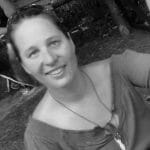
Rachel’s focus is on somatic therapies and the healthy integration of plant practices. She has successfully fund-raised, planned and organized public events, hosted intentional integration practices with ethnobotanicals, created artwork, designed integration journals, met with the 4J school board to discuss drug awareness education in classrooms. Rachel brings power, stability, and genuine strength and determination to ECfES and acts as an original steward for the original ECfES vision.
About James Franzo
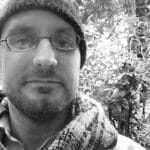
A 20-year journey of self-education (using what has now become a large part of the lending library we operate) inspired James to launch ECFES. Additionally, gaining experience working in the field of chemical dependency treatment and social services contributed further to his disenfranchisement with current policy and treatment modalities, and attracted him further to evidence-based approaches to drug policy reform and the mental health field in general. Specifically, potent ethnobotanical plants and mind/body methodologies for integrating them. James is also an honorably discharged military veteran, who served for six years. James has been the website content developer @ ECFES, library archivist, team builder, and steward of the original vision for ECFES, an ethnobotanical/psychedelic/entheogenic healing center under one roof.
In this episode, Joe interviews Tep, a chemical engineer and educated, psychedelic enthusiast. They dive into rich conversation regarding drug use education and creating a cohesive meaning among recreational, medical and therapeutic substance use.
3 Key Points:
- There is a disconnect between drug education and drug use. There are a lot of people who use drugs, but not a lot of people who are educated on how to use them.
- There is a huge advantage of isolating the property of the drug when using them for therapy. For example, using isolated psilocybin vs mushrooms.
- Learning on site at festivals and music events may not be super successful, drug education and harm reduction may look more like preparation.
Support the show
- Patreon
- Leave us a review on iTunes
- Share us with your friends – favorite podcast, etc
- Join our Facebook group - Psychedelics Today group – Find the others and create community.
Navigating Psychedelics
Trip Journal Integration Workbook


Show Notes
About Tep
- Tep listens to all sorts of music, whether that's rave style with lights, or jam bands, or a music festival with camping, or even rap and jazz
- There is a whole spectrum of drug use in the music environment
- She points out that some people are very mindful of what and how much they are taking, and other people are just taking anything they can find, and sometimes a lot or too much
- She started to talk to people at festivals and realized that people really didn't know about the benefits and power of psychedelics
- There definitely is a place for harm reduction education at festivals
Drug Use Assistance Groups
- Joe brings up the Zendo project and other initiatives that help people who are having a difficult drug experience to walk them out of it
- Some festival ‘families’ go around and have missions to hydrate people or make sure people are having a good time
- They aren't staff or paid to do it or anything but they do it for the good of the whole
Vision
- Learning on site may not be super successful, most festival goers have an agenda for adventure and music and not for learning at a booth or speaker
- Drug education and harm reduction may look more like preparation
- Tep mentions Diplo doesn't allow any drug use at his shows, alcohol is the only allowed substance
- Tep thinks that he probably doesn't know that alcohol is far worse than psychedelics and other drugs
Theraputic Use
- When someone goes and has a vacation, they have certain chemicals released in their mind, it is still therapeutic, even if it's not a psychedelic experience
- “Not only can psychedelics be fun, they can also be therapeutic.” - Tep
- Tep started going to camping style festivals and started hanging out with a crowd of people 10 years older than her, where their drug use was mature and mindful and safe
- Then when she would hang around her younger friend group again, she realized how unsafe and unmindful their drug use was
- It led her to be more active in wanting to educate everyone on how to use drugs properly
Exotic Compounds
- Shulgin's magical half dozen includes 2CB, 2CT2, and others
- Tep mentions preference of truffles over mushrooms
- Her and Joe bring up the decrease in potency of most drugs with exposure to moisture and time and other variables
Compound Isolation
- There is a huge advantage of isolating the property of the drug when using them for therapy
- For example, using isolated psilocybin vs mushrooms
- The therapy is just as important as the substance
- There is a way to find information in this community without getting a degree in it
About Tep
Tep is a chemical engineer who had an interest in modern psychedelic research. She is passionate about the EDM and music culture and finding new ways to educate drug users on harm reduction and drug use education.
In this unique episode, Dr. Peter Sjöstedt-H joins together in conversation with Dr. Andrew Gallimore, Author of Alien Information Theory: Psychedelic Drug Technologies and the Cosmic Game. In the show, these two Englishmen discuss Peter's critique of Dr. Gallimore's recent book.
3 Key Points:
- Dr. Andrew Gallimore’s recent book, Alien Information Theory: Psychedelic Drug Technologies and the Cosmic Game, explains how DMT provides the secret to the very structure of our reality.
- Based on a recently published review of Andrew’s book, Dr. Peter Sjöstedt-H sifts through and confronts Andrew’s idea that DMT allows one access to, and existence in a hyperspatial world.
- They discuss Peter’s critique, covering topics on information, consciousness, dimensions, dreams and theory.
Support the show
- Patreon
- Leave us a review on iTunes
- Share us with your friends – favorite podcast, etc
- Join our Facebook group - Psychedelics Today group – Find the others and create community.
Navigating Psychedelics
Trip Journal Integration Workbook


Show Notes
Peter’s review on Alien Information Theory
- Peter mentions 3 ‘problems’
- The first problem is a critique on what information is
- The second point regards consciousness
- The third point talks about dimensions and theories
Information
- The first problem Peter states says that the originality of the work pushes the ideas further toward art and further away from truth
- Andrew says he is a fan of making things a work of art, and he says at the start of the book that it isn't something scientific
- In philosophy it's called speculative metaphysics
- “It's cliche isn't it, that science fiction eventually becomes science fact.” - Peter
- Minkowski Space Time, the theory that Einstein supports, HG Wells wrote about a half a century before Minkowski wrote about it
- Peter says that a person could be defined by a set of numbers, weight, height, age, etc.
- Andrew says that the information is the electron, and how it interacts with other information
- How do we know that there is not more to anything than that which we can know about it?
- How matter creates/is mind is a mystery
Consciousness
- Peter asks, ‘does information at a high level produce subjectivity?’
- Andrew says consciousness is fundamental
- Panpsychism holds a distinction between an aggregate and a hold-on
- Andrew says that integrated information is consciousness
- Information doesn't emerge from consciousness, information actually is consciousness
- Andrew says that he is an idealist, he thinks that the world is structured
- Peter says that information always has to be about something
- Andrew disagrees and says that information is substantiated
- You could say, the fundamental digits of our reality are ran by an ‘alien computer’, the physics completely different than our understanding of reality
- Andrew says that the absolute self is not only aware of itself, its aware that it is aware of itself
- He also says that these ideas are all musings, all things he has thought about as possibilities
- Peter asks Andrew if he thinks brains are required for consciousness
- Andrew says, consciousness is not a property of matter, it is an organization of things
Dimensions and Theories
- Andrew says we don't need senses to experience other worlds
- The DMT experience is not mind dependent, it shows another reality
- When you're dreaming, it's independent of the sensory experience, but its not entirely independent of the waking world
- “The dream state is informed by the waking state.” - Andrew
- Peter asks, ‘If the brain creates dreams, why does the brain not create the DMT world?’
- “We know how the brain learns to construct worlds, but we don't know how the brain learns to construct DMT worlds.” - Andrew
- When looking at a machine elf, is he equally as able to deny his consciousness as we are able to?
Final Thoughts
- Peter concludes that Andrew is a Realist/Panthiest
- Peter and Andrew think that they don't disagree with each other, but Peter believes Andrew would have to go into extremely deep detail on all of his points in his book, and the book is thick enough as it is
- Peter agrees Andrew’s book is a great narrative for mapping the DMT space
- Andrew likes to think of it as computational idealism
Links
Alien Information Theory: Psychedelic Drug Technologies and the Cosmic Game
About Dr. Andrew Gallimore
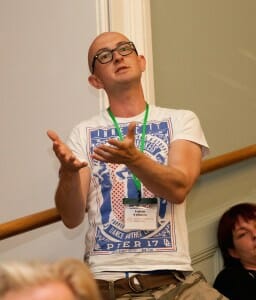
Dr. Andrew Gallimore is a computational neurobiologist, pharmacologist, chemist, and writer who has been interested in the neural basis of psychedelic drug action for many years and is the author of a number of articles and research papers on the powerful psychedelic drug, N,N-dimethyltryptamine (DMT), as well as the book Alien Information Theory: Psychedelic Drug Technologies and the Cosmic Game (April 2019). He recently collaborated with DMT pioneer Dr. Rick Strassman, author of DMT: The Spirit Molecule, to develop a pharmacokinetic model of DMT as the basis of a target-controlled intravenous infusion protocol for extended journeys in DMT space. His current interests focus on DMT as a tool for gating access to extradimensional realities and how this can be understood in terms of the neuroscience of information. He currently lives and works in Japan.
About Dr. Peter Sjöstedt-H
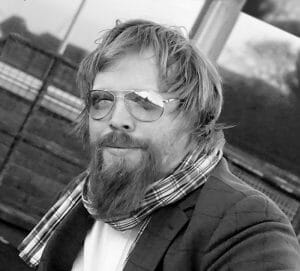
Dr Peter Sjöstedt-H is an Anglo-Scandinavian philosopher of mind and a metaphysician who specializes in the thought of Whitehead and Nietzsche, and in fields pertaining to panpsychism and altered states of sentience. Following his degree in Continental Philosophy at the University of Warwick, he became a Philosophy lecturer in London for six years and has now passed his PhD (on ‘Pansentient Monism’, examined by Galen Strawson and Joel Krueger) at the University of Exeter, where he also teaches philosophy modules and writing skills. He is now to become a postdoc fellow of the university. Peter is the author of Noumenautics , the TEDx Talker on ‘psychedelics and consciousness‘, and he is inspiration to the inhuman philosopher Marvel Superhero, Karnak.
In this episode, Joe and Kyle sit down to have a conversation about the 39th Annual Telluride Mushroom Festival, Healing the Mind, Healing the Planet. Joe attended the conference and heard from many amazing speakers.
3 Key Points:
- Joe attended The 39th Annual Telluride Mushroom Festival last weekend, a festival and conference that celebrates all things fungal and brings together a cohort of enthusiasts, experts, and scientists.
- There was a lot of talk on the topic of microdosing. Opinions ranged from the feeling that there isn't enough valid data to prove that microdosing is effective, to some testimony on how microdosing has helped relieve cluster headaches or help with traumatic brain injuries.
- There was some exciting news on innovative ways that mushrooms can be used medically to help fight disease or agriculturally to fight insects without using pesticides.
Support the show
- Patreon
- Leave us a review on iTunes
- Share us with your friends – favorite podcast, etc
- Join our Facebook group - Psychedelics Today group – Find the others and create community.
Navigating Psychedelics
Trip Journal Integration Workbook


Show Notes
- The Telluride Mushroom Festival took place August 14th - 18th
- This festival is is a placeholder Psychedelic conference
- In the mycology world, the psychedelic topic isn't typically included in events

Attendees and Talks
- Brick Bunyard, who runs psychedelic magazine
- Tradd Cotter of Mushroom Mountain, an excitable mycologist
- Larry Evans of Blue Portal
- Teresa Egbert of Herbal Visionz, a Psychedelic enthusiast
- Peter Hendrix and Sara Lappan spoke on a study for using psychedelics to curb cocaine use
- David Nichols, chemist, was pretty optimistic about where the psychedelic movement is heading
- He gave a super scientific talk around receptor sites and LSD
Music and Psychedelics
- Joe says that there is a long history of music and psychedelics
- Kyle mentions a podcast he listened to about someone bringing in their own music for a Ketamine therapy session
Psychedelic Therapy
- There was someone at the conference that said psychedelic therapists should have psychedelic experiences and should be open about it
- It was an interesting conversation at the conference
- Joe says, “you don't need PTSD to treat someone with PTSD, it's not the most important factor. The most important factor is safety.”
Scientist Conference
- Joe mentions a conference coming up in the fall in New Orleans that is a Scientist only conference
- If a scientist has published serious, quantitative data they are invited
- It'll be the first gathering of its kind where there is finally enough data
Microdosing
- David Nichols shared his opinion on microdosing, that there isn't real data on it and that importance should be put toward medical uses
- Folks in the audience were making claims about microdosing for migraines and traumatic brain injuries, etc
- Are people taking sub-perceptual doses or a threshold dose?
- Joe says a macro dose is a dose you can see (maybe the size of an ant), micro dose is something you need a microscope to see
- The majority of people microdosing aren't educating themselves on dose size
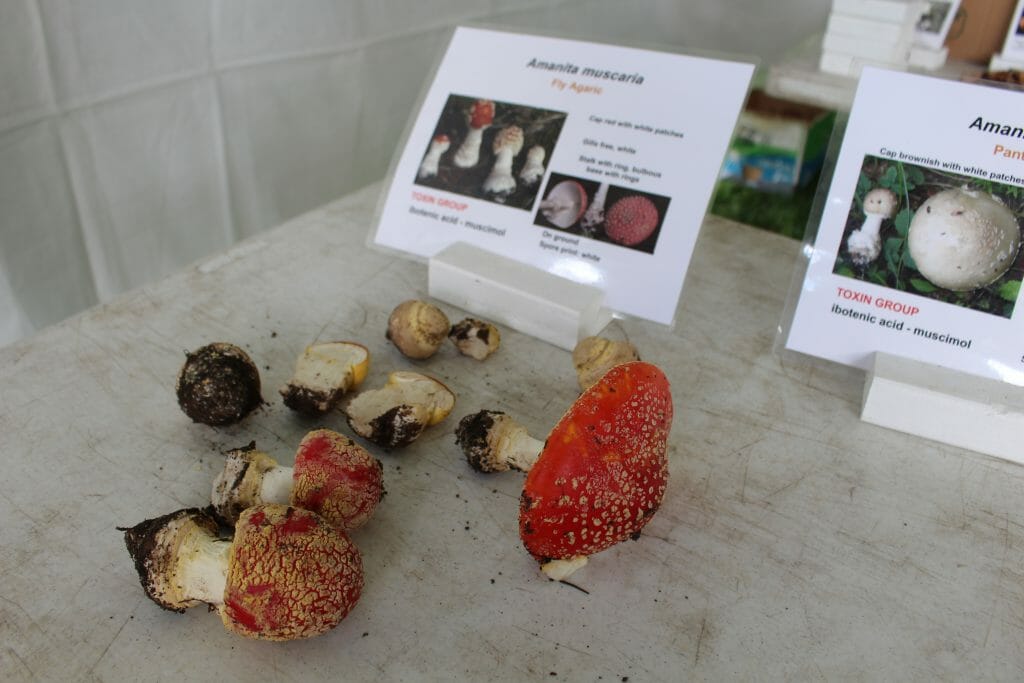
Interesting Moments from the Conference
- Joe was surprised was how charismatic Tradd Cotter was
- Tradd has plans to do mushroom retreats in Jamaica
- The most exciting news is a new method of pulling out the antibiotic resistant ‘stuff’ in a person, culturing it out and introducing it to sterilized/colonized grain bag and then reintroducing it to the person so they aren't antibiotic resistant anymore
- This would be a mushroom bi-product that fights disease in humans in less than 24 hours
- This same model could be used in cancer treatments or even agricultural applications, using mushrooms to fight disease or bugs that kill plants, etc
- There were mushroom foraging walks and mushroom identification tables at the festival
- Vendors included mushroom kombucha, mushroom jerky, festival clothing, etc
- There was a guy from outside of Arizona who casts real psilocybin mushrooms and makes detailed metal jewelry out of them
- The town is small and surrounded by super tall mountains, and the festival is dispersed around the town
- It's a small festival and a great way to make connections
- “This is where you quit your job and dedicate your life to mushrooms” - Tradd Cotter
- Mushroom farming is one of the few businesses you can start with under $5,000
Links
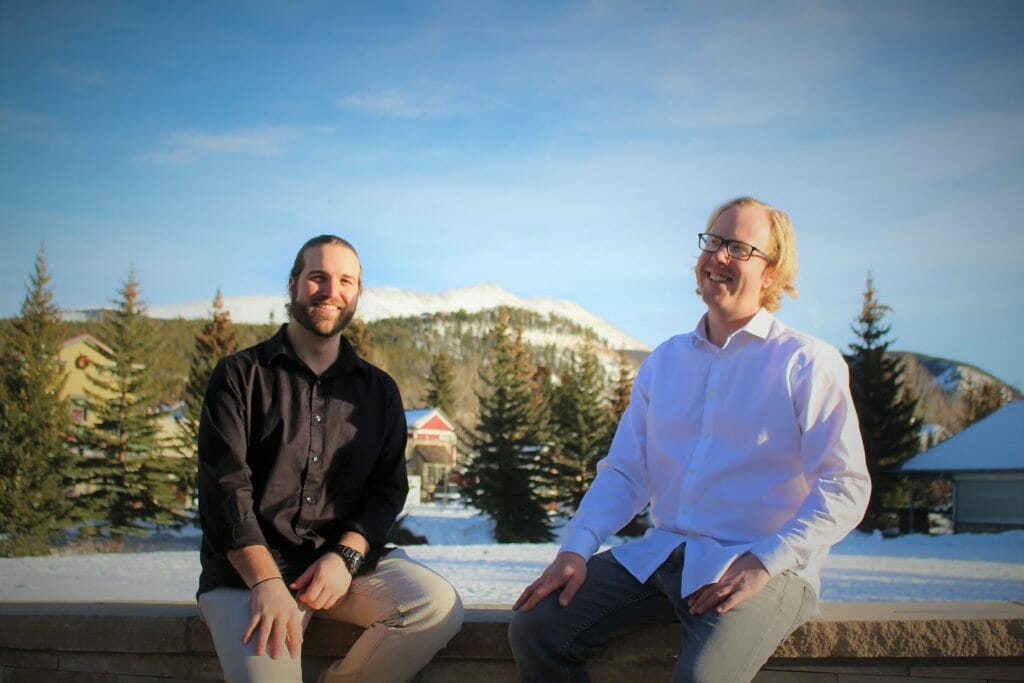
About Kyle
Kyle’s interest in exploring non-ordinary states of consciousness began when he was 16-years-old when he suffered a traumatic snowboarding accident. Waking up after having a near-death experience changed Kyle’s life. Since then, Kyle has earned his B.A. in Transpersonal Psychology, where he studied the healing potential of non-ordinary states of consciousness by exploring shamanism, plant medicine, Holotropic Breathwork, and the roots/benefits of psychedelic psychotherapy. Kyle has co-taught two college-level courses. One of the courses Kyle created as a capstone project, “Stanislav Grof’s Psychology of Extraordinary Experiences,” and the other one which he co-created, “The History of Psychedelics.”
Kyle completed his M.S. in clinical mental health counseling with an emphasis in somatic psychology. Kyle’s clinical background in mental health consists of working with at-risk teenagers in crisis and with individuals experiencing an early-episode of psychosis. Kyle also facilitates Transpersonal Breathwork workshops.
About Joe
Joe studied philosophy in New Hampshire, where he earned his B.A.. After stumbling upon the work of Stanislav Grof during his undergraduate years, Joe began participating in Holotropic Breathwork workshops in Vermont in 2003. Joe helped facilitate Holotropic and Transpersonal Breathwork workshops while he spent his time in New England. He is now working in the software industry as well as hosting a few podcasts. Joe now coordinates Dreamshadow Transpersonal Breathwork workshops, in Breckenridge, Colorado.
In this episode, Kyle interviews Daniel Shankin, Founder of Tam Integration. They cover topics including the Psilocybin Summit, child rearing, and integration practice.
3 Key Points:
- The Psilocybin Summit is an online conference on the myth, magic and science of psychedelic mushrooms.
- Psychedelic Integration is really a form of reparenting ourselves. We need to learn to ask ourselves how we can connect deeply without becoming codependent.
- Child rearing is an important topic. Nurturing a child with care and love is similar to the way we use psychedelics, meditation and yoga for healing.
Support the show
- Patreon
- Leave us a review on iTunes
- Share us with your friends – favorite podcast, etc
- Join our Facebook group - Psychedelics Today group – Find the others and create community.
Navigating Psychedelics
Trip Journal Integration Workbook


Show Notes
About Daniel
- Daniel came up in the psychedelic space in the 90’s
- Recreational use turned into therapeutic use
- He explains that as enlightenment called to him, it also called him to do shadow work
- He said the transformational work began in his 20’s
- He said there was no community so he used Ram Dass books to help with integration
- Daniel says that psychedelics made him feel a deeper sense of life, more responsibility in his role on earth, feel more connected, etc.
- His calling from these feelings led him to practice yoga, open a studio, provide trainings and more
- “People gain so much by being heard” - Daniel
Child Rearing
- Daniel mentions talking to his wife about conscious child raising
- The conversation is about how to heal, not just talking about how to raise ourselves so we need less healing
- “How do I raise a baby with as little trauma as possible?” - Daniel
- Grof talks about the birth process in his books but kind of stops talking about trauma after the baby is out
- The baby is designed to be held by the mother, and to put that child in a box with other children in boxes without parents, in a cold and sterile environment is a horrible idea
- We project our own anti-social tendencies onto babies
- A baby is meant to have constant connection and attention, and when we give a baby neglect, we wonder why they have addiction, depression, etc.
- Psychedelic Integration is really a form of reparenting ourselves
- “How much deep connection can you offer and can you stand? How can I connect deeply without becoming codependent?” - Daniel
Attachment and Healing
- As a yoga teacher for 20 years, he has found that there is a type of reparenting, that it is helping people to learn to help themselves
- “Caring for people is a good thing to practice, one of our greatest problems is self-centeredness” - Daniel
- Money isn't the problem, "my money" is the problem
- Samskara is a subtle tendency of the mind (like an eroded river)
- The tendency to prove that we exist, or to prove that we are right, is something that the ego promotes
- It takes energy to tame the ego and recondition ourselves
- “Am I trying to prove that I exist in order to feel loved?” If our needs are met and we feel safe and loved, we don't need to prove ourselves
- We tend to look for the quickest and easiest way possible for the least amount of suffering, we look for the quick fix, but there is a lot of work to be done typically
- It's important to introduce a meditation practice into a psychedelic practice
- Babies will cry into an endless void because they don't understand time, just like in breathwork or psychedelic sessions, where time is distorted
Mindfulness of Enthusiasm
- Enthusiastic consent is where you can press someone into giving you consent
- Are they enthusiastic about engaging with you? If not, then don't
- Learn how to gauge enthusiasm
Psilocybin Summit
- September 19-22, 2019
- The 920 Coalition is doing for psilocybin what 420 is doing for cannabis
- There has never been a conference that is just psilocybin, and never fully online and live
- It allows people to attend a conference from home
- There is no venue to pay for, no tickets for travel, making it more accessible
- The goal is to get as much traditional information as possible
- Daniel says he's not advocating psychedelics, he is advocating meditation for those who use psychedelics
- Daniel hopes that with this conference, that he didn't choose the speakers to just spit facts, hopefully this is heart and mind education that helps people feel like there is something possible in their lives that makes them feel greater, and that may or may not include psilocybin
Coaching vs. Therapy
- Some people do not need therapy, they need coaching and accountability
- We live in a world where our context does not always work to serve us
- How do we change our context to better serve us?
Links
About Daniel Shankin
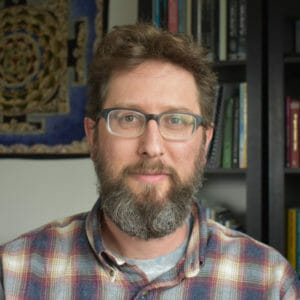
After a profound and intense awakening experience in 1998, Daniel dove deep into his yoga and meditation practice to stabilize his realization in his body and the world. He began teaching in 2002, and took over leadership of his neighborhood yoga studio in 2004. He’s directed several teacher training programs and taught on the faculty of even more. Daniel ‘Sitaram Das’ Shankin has dedicated his life to the cultivation of clarity, resilience, and heart. With the recognition that our true nature is vast and generous, wise, he strives to serve his clients in finding their own innate goodness and boundless strength. He currently offers leadership coaching with a heavy emphasis on mindfulness and somatics, and is based in Marin County. You can visit his website and learn more about coaching opportunities at sitaramdas.com.
In this episode, Kyle sits down to chat with Greg Kieser, Founder of think-tank, Supersystemic.ly and author of Dear Machine, a book written as a letter to a future super-intelligent entity. Topics covered include blockchain, AI, money, Psychedelic Investments and how psychedelics can help humanity prepare for the emergence of super-intelligent entities.
3 Key Points:
- Blockchain offers an enormous amount of opportunity, by taking data that would otherwise be protected by government or big corporations, and making it accessible to the general population for a more accessible information source.
- Money is this interesting concept, that we are storing our time, our energy and our goods in a piece of paper. Psychedelics can help with this, be rewiring the way we think about money and the overall exchange for goods and services.
- Psilocybin is a cure, its use does not need to be continued for it to work, so Compass Pathways is highly incentivized to continue to heal new people, which is what we want, healing at scale.
Support the show
- Patreon
- Leave us a review on iTunes
- Share us with your friends – favorite podcast, etc
- Join our Facebook group - Psychedelics Today group – Find the others and create community.
Navigating Psychedelics
Trip Journal Integration Workbook


Show Notes
About Greg
- Greg worked at a foundation in NYC aimed at reducing the rate of poverty
- He started an angel investment firm/think tank, Supersystemic.ly
- He wrote the book, Dear Machine, a letter to a future, super-intelligent entity
Looking to the Past
- Our nutrition narrowed when we became farmers
- “The truth is, we can't go back to where we came from, we have to go to a new place, so how do we do that?” - Greg
- There is such difficulty with people living in clusters (cities) and transporting all of the food in from the country
- It's important for the psyche to get back to nature and even taking on a hobby as simple as gardening can be so healing
- Children’s immune system has been shown to become stronger when living on farms and playing with animals and in the dirt
- Psychedelics are helpful in understanding how interconnected everything is
Integration of Technology
- Blockchains have the capacity to take data and pull it into a place where we have more control over it (can't be bought or sold)
- When we combine our knowledge of technology with psychedelics, we will really start to progress as a species
Block Chain
- The creator of Bitcoin created BlockChain, which is a type of database that lives out on the internet that no one can own
- It offers an enormous amount of opportunity, by taking data that would otherwise be protected by government or big corporations, and making it accessible to the general population for a more accessible information source
- Greg mentions a block chain that will be a regeneration of land
- Maybe all the members donate $50 to the block chain, and those members then can follow the progress of a pond or the growth of a tree, etc
- Its a good example of a block chain being used for good
Money
- Money is this interesting concept, that we are storing our time, our energy and our goods in a piece of paper
- Psychedelics can help with this, be rewiring the way we think about money and the overall exchange for goods and services
AI
- AI is going to get more and more powerful and corporations and governments are going to want to get their hands on AI for more power
- In Dear Machine, Greg wrote about a super aware machine that helps us to make super intelligent decisions based on what food to eat (based on our microbes, our genetics, what is the most sustainable for the environment, etc)\
- Greg fears that the government will try to take control of it and have its own agenda, but he thinks that with super awareness for decision making, that good will win
- Kyle mentions that the Western mind is so obsessed with Apocalypse
- AI and Superintelligence are going to accelerate whatever systems we already have in place
- If it happened right now, it would look ugly
- But, if we create a world that appreciates interconnectedness and the diversity and complexity of our minds and our bodies, then we will be in a much better place
- Psychedelics have a huge role to play, it allows us to appreciate things, it helps get our ego out of the way, it helps us break addiction
- Monoculturization has led to a lot of bad things
- “Don't try to change the system, just make a new system” - Buckminster Fuller
- Human well being and environmental stability are two metrics that we need to work on
Interest in Psychedelics
- Greg's interest in psychedelics began when we was invited to Psilocybin ceremonies
- He said it just ‘clicks’
- “You really don't understand what psychedelics are until you take them” - Greg
- He then began to invest in psychedelics, microbiomes, agriculture, etc
Compass Pathways
- The main problem with the health system is that we get into the idea of patenting molecules
- Psilocybin is a molecule that can't be patented, so he's not worried
- Greg wants to see psilocybin use at a larger scale, so the medical model is a great way to get there
- As a part of Compass Pathway’s program, in order to be a therapist and provide the therapy, you have to go through the therapy yourself
- Psilocybin is a cure, its use does not need to be continued for it to work, so Compass is highly incentivized to continue to heal new people, which is what we want, healing at scale
Looking Ahead
- Greg is most excited to see healing from opioid addiction
- Alcohol and tobacco fall under that in his hopes for healing
- Greg is also really excited about the microbiome and the gut connection to the rest of the body
- There was an Autism study that gave people with Autism a microbe transplant from healthy people and after 2 years there has been a remission of symptoms
Microbiome Reddit
- There was an Autism study that gave people with Autism a microbe transplant from healthy people and after 2 years there has been a remission of symptoms
Links
Supersystemic.ly
Dear Machine: A Letter to a Super-Aware/Intelligent Machine (SAIM)
About Greg Kieser

Greg Kieser is founder of Supersystemic.ly, a Brooklyn-based think-tank and angel investment firm dedicated to increasing humanity's readiness for the emergence of superintelligent entities through the study and spread of "supersystemic" perspectives and innovations. Kieser, whose university and independent studies of complex systems science form the operating thesis of the company, founded Supersystemic.ly after more than a decade overseeing a portfolio of technology initiatives at an NYC-based poverty-fighting foundation. His work at the foundation was driven by a complex set of metrics for measuring the impact of investments on the economic, physical and mental well-being of low-income New Yorkers. Dear Machine, and to a greater extent the company, unites his unique skills and knowledge in technology, social investing and complex systems science.
In this episode, Joe interviews Dr. David Nichols, American Pharmacologist and Chemist. Dr. Nichols has made many contributions to the psychedelic space and is recognized as one of the foremost experts for his outstanding efforts in medicinal chemistry of hallucinogens.
3 Key Points:
- Dr. David Nichols is the founder of The Heffter Research Institute, which promotes research of the highest scientific quality with the classic hallucinogens and psychedelics in order to contribute to a greater understanding of the mind leading to the improvement of the human condition, and to alleviate suffering.
- Dr. Nichols has a strong opposition toward the DMT/pineal gland theory. The assumption is that DMT is released during birth and death, but Dr. Nichols presents opposing arguments as to why it isn't true.
- David doesn't believe in the research of microdosing psychedelics. He believes there are many other diseases and disorders that research money could be put toward discovering drugs for than the potential for heightened creativity with microdosing.
Support the show
- Patreon
- Leave us a review on iTunes
- Share us with your friends – favorite podcast, etc
- Join our Facebook group - Psychedelics Today group – Find the others and create community.
Navigating Psychedelics
Trip Journal Integration Workbook


Show Notes
About David
- When he was a kid he was into pyrotechnics
- He synthesized a lot of MDMA for MAPS
- He is the founding President of Heffter Research Institute
- He was introduced to psychedelics before he went to graduate school
- David's work was never interrupted during the drug war because he wasn't doing any clinical work
- He proposed the study for MDMA testing on rats for a micro-dialysis of chemicals being released from the brain
David’s History of Substances
- David attended a meeting at the Esalon Institute
- He met Rick Doblin, a young kid at the time, who was enthusiastic about MDMA and Marijuana
- Rick decided he wanted to develop MDMA as a drug, and asked David to make it with him
- Then David met Rick Strassman, who asked him to make DMT
- So he made the DMT and then DMT Spirit Molecule came out as a result
- David made the first batch of psilocybin for John Hopkins
- “The only way to use these substances, is to use the medical model.” - David
Microdosing
- David doesn't agree with microdosing, he thinks its all just a big hype
- He says that there is a huge placebo effect with microdosing
- He says there isn't a lot of proven results and literature to make him believe in it
- He thinks that there are far too many other things to research and create drugs to cure (like eating disorders for example) vs. just heightening creativity with microdosing
- David edited Torsten Passie’s book, The Science of Microdosing Psychedelics
DMT
- Rick Strassman’s DMT hypothesis is that upon birth and death, the Pineal gland produces DMT, which produces an outer-body experience
- David says that the pineal gland is too small, it's only 180mg
- It produces 25 micrograms of melatonin in 24 hours, so there is no way for it to produce 25 milligrams of DMT, the amount needed for a DMT trip
Heffter Origins
- Heffter Research Institute was David’s idea
- Arthur Heffter was a scientist with a PhD in Pharmacology and Chemistry
- He was one of the most well respected Scientists in Germany
- He got samples of Peyote, and knew there were alkaloids in it, and he separated all the alkaloids, and took each alkaloid himself to find out that mescaline was the active component in Peyote
- He was the expert who invented hair tests to find out if people were suffering from lead poisoning
Heffter Research Institute
- The effects that they discovered from Psilocybin blew them away
- They knew LSD had powerful effects, but they weren't expecting to find the therapeutic benefits that they did with Psilocybin
- Psilocybin has a great timeline too, LSD is really long lasting, and 5-MEO-DMT is super short and really powerful
- Psilocybin is great for use in therapy because of the time it allows for integration
GMP Psilocybin Patent
- Joe mentions the patent of GMP Psilocybin and asks if there are other ways to make psilocybin
- David says that he believes there are other ways to make Psilocybin
- The cost of psilocybin is trivial in comparison to the cost of therapy, David doesn't think that the drug itself will have a monopoly
Links
About Dr. David Nichols
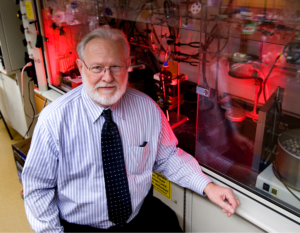
Dr. Nichols originally conceived of a privately funded Institute as the most effective mechanism for bringing research on psychedelic agents into the modern era of neuroscience. This vision led to the founding of the Heffter Research Institute in 1993. He is currently an Adjunct Professor at the University of North Carolina Chapel Hill, NC, where he continues his research. The focus of his graduate training, beginning in 1969, and of much of his research subsequent to receiving his doctorate in 1973 has been the investigation of the relationship between molecular structure and the action of psychedelic agents and other substances that modify behavioral states. His research has been continuously funded by government agencies for more three decades. He consults for the pharmaceutical industry and has served on numerous committees and government research review groups. Widely published in the scientific literature and internationally recognized for his research on centrally active drugs, he has studied all of the major classes of psychedelic agents, including LSD and other lysergic acid derivatives, psilocybin and the tryptamines, and phenethylamines related to mescaline. Among scientists, he is recognized as one of the foremost experts on the medicinal chemistry of hallucinogens. His high standards and more than four decades of research experience set the tone to ensure that rigorous methods and quality science are pursued by the Institute.
Download
In this episode, Kyle sits down with Dr. Torsten Passie, Professor of Psychiatry and Psychotherapy with the Hanover Medical School in Germany. In the show, they cover a range of topics on Dr. Passie’s studies on microdosing.
Dr. Torsten Passie will be taking part in a special panel dedicated to microdosing at Breaking Convention 2019 (August 16-18, Greenwich, London), also featuring Amanda Fielding of the Beckley Foundation, Dr David Erritzoe of Imperial College, London, Dr Devin Turhune (Goldsmiths), and Dimitris Liokaftos, exploring myriad aspects of microdosing, including its effects, unknowns, and media representation presented by BC director Nikki Wyrd. Find out more about Breaking Convention: https://www.breakingconvention.co.uk/
3 Key Points:
- Psychedelic research in the University setting died off after 2004, but is finally seeing an increase as the psychedelic revolution continues to grow.
- There is very little to no documentation of doctors doing self-experimenting with psychedelic drugs. It's becoming popular for therapists to use the substances used on their patients, more common to do the self-work before doing the work on others.
- Even if microdosing does not produce any significant effects and it is all placebo, the trend is a new way to introduce it into our society.
The Science of Microdosing Psychedelics
Support the show
- Patreon
- Leave us a review on iTunes
- Share us with your friends – favorite podcast, etc
- Join our Facebook group - Psychedelics Today group – Find the others and create community.
Navigating Psychedelics
Trip Journal Integration Workbook


Show Notes
About Dr. Passie
- Dr. Passie has been researching psychedelics for 25 years
- He specializes in the therapeutic use of psychedelic drugs
- He has found difficulties in researching psychedelics during prohibition
- Dr. Passie had a mystical experience before using psychedelics and then became interested in psychedelic use
- He had grown up as an atheist, a materialist, and his experience required him to change his psychological state
- His perception of reality was irritated and he had to see a therapist to integrate this experience
- He said that this was frustrating because he was young and still in search for his identity
- Through all of this, he decided to study medicine and become a psychedelic doctor
- He became very conscious that he was on the right track
Research Studies
- The researchers were the only ones doing studies on psychedelic states, there wasn't much happening at the Universities
- He did studies with cannabis, ketamine and even laughing gas
- The research then was on how cannabinoids can help with psychosis
- They were not successful with that, but it came to be that CBD was a neuroleptic and an anti-psychotic
- Research pretty much stopped after 2004 due to new laws and the cost of the research
- Dr. Passie does mention that in the past 10 years research has really taken off again and that we are really seeing the renaissance of psychedelic culture
- In most of the literature of doctors doing self-experimenting, there is very little to no documentation of doctors doing self-experimenting with psychedelic drugs
- Kyle mentions that MAPS has included into their training protocol to allow for therapists to have self-experiments with the substances that they are using on patients
- Kyle also mentions he can't imagine trying to hold space in breathwork without having had his own experiences with breathwork
- Dr. Passie says that the history of self-experimentation with psychedelics has shown that the participants can become ‘gurus’ and lose their objectivity, he uses Timothy Leary as an example
- But with only a few times of self-experimentation, maybe 2-4 times, he doesn't see risks
HPPD
- Hallucinogen persisting perception disorder (HPPD) is a disorder in which a person has flashbacks of visual hallucinations or distortions experienced during a previous hallucinogenic drug experience
- Dr. Passie thinks there is a selection bias in what is published about HPPD
- Its more common to have a study published that talks about an adverse effect of LSD than a benefit of it
- Hundreds of thousands of studies were conducted in the 50’s, and no one claimed that this phenomenon came up
- And now one person has conducted a study, claiming that this phenomena exists
- Dr. Passie says that this pattern happens among people who are prone to anxiety and who are dissociative
- He says that most subjects that claim to experience HPPD, have experienced visuals even before ever taking LSD
Microdosing
- It has been known to not have any effects from 15-20 micrograms of LSD
- 20-50 micrograms of LSD is considered mini-dosing, where you can feel some type of effects from it, but not as much as the full dose
- Dr. Passie says it is strange for people to claim to have increased cognition during microdosing based on conventional data that shows that LSD produces poor cognitive function
- He thinks that whatever the effects are of LSD at a high dose, that the effects at a low dose are the same, just less, not completely different effects
- He believes that there is some placebo effect with microdosing
- In terms of the microdosing trend, Dr. Passie is critical about the productivity factor, he does believe in the creativity factor though
- The flow state may also be increased with microdosing
- He claims that in his own experience with microdosing, he doesn't experience the flow state, in fact he experiences a feeling of agitation
Combinations
- In a study, when patients took a microdose first, and then a little while later, they took a different full psychedelic dose, the microdose impacted the experience of the full dose
- It lessened the effects of the full dose psychedelic
Psychedelics and Sleep
- Dr. Passie mentions a study where patients were given LSD, both high and low doses, during sleep
- What was found was that LSD impacts REM sleep patterns
- The dreams were not altered
- The REM phases got longer during the beginning of sleep, and then much shorter near the end of sleep
- It shows that the impact of sleeping patterns brings someone to feel much different the next day
The Microdosing Trend
- Microdosing has much to be explored yet
- But even if microdosing does not produce effects, the trend is a new way to introduce it into our society
- “Microdosing might be a new assimilation process of psychedelics into our culture” - Torsten
- Instead of the 60’s where we are taking huge doses, we are taking tiny doses as a slow approach to assimilate psychedelics back into society
Links
The Science of Microdosing Psychedelics
About Dr. Torsten Passie

Torsten is a professor of psychiatry and psychotherapy affiliated with Hannover Medical School, and led the Laboratory for Consciousness and Neurocognition. He has conducted clinical research on psychoactive substances and has written several books including The Pharmacology of LSD (2010) and Healing with Entactogens (2012). Between 2012 and 2015 he was visiting professor at Harvard Medical School.
In this episode, hosts Kyle and Joe sit down with Psychologist, David Luke, Executive Director of Breaking Conventions, a conference on the better understanding of psychedelics. In the episode, they cover research on psychedelics and transpersonal ecopsychology.
3 Key Points:
- Transpersonal experiences are super powerful and can be valuable if integrated properly.
- Getting access to drugs at affordable prices for research is difficult for the progression of the psychedelic movement. There is a lot of red tape in studying psychedelics.
- There is a growing field for mapping altered states of consciousness using science and research.
Support the show
- Patreon
- Leave us a review on iTunes
- Share us with your friends – favorite podcast, etc
- Join our Facebook group - Psychedelics Today group – Find the others and create community.
Navigating Psychedelics
Trip Journal Integration Workbook


Show Notes
About David
- David is a Psychologist
- He works at the University of Greenwich
- He is a co-founder of the Breaking Convention Conference
Breaking Convention
- August 16-19, 2019 in London England
- There are over 180 speakers, a variety of workshops, and more
- David will be speaking about Shamanic perspectives and mapping altered states of consciousness
- The topic of David’s speech for the conference is Ecodelia: Towards A Transpersonal Ecopsychology Through Psychedelics.
Parapsychology
- Parapsychology is a study of phenomena that questions what we think we know about science
- David has conducted pre-cognition experiments with ayahuasca, san pedro, mescaline
Research
- David says it's tricky doing this work because there is a serious amount of red tape around psychedelic studies
- Getting access to the drugs and to get a lab to make them specifically for research is outrageously expensive
- David says that Compass Pathways is making the research side of things easier
- He says that he wants the proper research to be done so that it can be available for all those who need it, and for that he supports Compass Pathways, but if they were to pull something like what happened with Esketamine and making an isomer of Ketamine extremely expensive, then he will not support it
Nature and Psychedelics
- Psychedelics provide a feeling of connectedness with nature
- People prefer to take psychedelics outside, but overall prefer to have amazing, transformative experiences, which in turn makes them more tuned in to nature
Transpersonal Experience
- An experience that is genuinely transpersonal can be useful
- Typically after a transformational experience, people question their sanity, they have cognitive dissonance, their world view just isn't suitable enough to contain a normal sense of reality anymore
- Its common for a lot of experiences to need a lot of integration afterward
- David leads breathwork sessions
- He sees people who have taken loads of psychedelics come in with skepticism about Breathwork, and then leave having the most transformative experience they've ever have
- “There are no limits to the human mind, and there are many ways to get there, and psychedelics are just the more obvious route.” - David
- We get further and further away from figuring out psychedelics as a whole the more hyper-specialized we become in our individual fields
- The psychedelic space is a really interesting territory
- The things that Terrence McKenna would talk about years ago, we are finally starting to explore with science
Links
Otherworlds: Psychedelics and Exceptional Human Experience (Muswell Hill Press)
About David
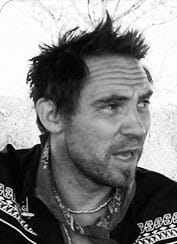
David is Senior Lecturer in Psychology at the University of Greenwich where he teaches the Psychology of Exceptional Human Experience. He was President of the Parapsychological Association between 2009-2011 and has published more than 100 academic papers on the intersection of transpersonal experiences, anomalous phenomena and altered states of consciousness. He has co-authored/co-edited four books on psychedelics and paranormal experience, directs the Ecology, Cosmos and Consciousness salon at the institute of Ecotechnics, and co-founded Breaking Convention.
In this episode, Kyle interviews David Krantz, Certified Epigenetic Coach, and an expert in nutritional genomics. In the show, they talk about the effects of substances via the implications on an individual’s genetics.
3 Key Points:
- Epigenetic testing is a bio-hack for boosting cognitive function and harnessing our creativity and ultimate human potential.
- There has been a lot of research done on genetics and the effects of THC. The body produces cannabinoids that activate the THC receptors internally, which varies from person to person.
- Each person should be seen on an individual level, and the more we know about our unique genetics, the more we can understand about our interactions with different substances.
Support the show
- Patreon
- Leave us a review on iTunes
- Share us with your friends – favorite podcast, etc
- Join our Facebook group - Psychedelics Today group – Find the others and create community.
Navigating Psychedelics
Trip Journal Integration Workbook


Show Notes
About David
- David works with clients on creating optimal epigenetic expression
- He uses people’s genetics as a guide to look at recommendations for diet, herbs, supplements, etc.
- He began looking at cannabis for recommendations and found curiosity in psychedelics too
- Epigenetics studies the effects of the modification of genetics
- It looks at chemical groups attached to the DNA itself and what happens to them over time
Cannabis and Genetics
- The most robust area of research on genetics is THC
- David said he has seen some research on Psilocybin and just very recently that liver enzymes are responsible for LSD interactions
- It looks at the way people are metabolizing these substances
- When you ingest something or smoke it, it has a higher impact on the body, edibles are a great example
- Kyle brings up the curiosity of edibles impact being either physiological or biological
- Genetics show the body’s cannabinoid levels
- The body produces cannabinoids that activate the THC receptors internally
- There are two enzymes that break down cannabinoids in the body, Anandamide and 2AG
- There is a higher likelihood to use cannabis in a person with lower levels of endocannabinoids
- This makes some people high-functioning stoners, and others non-functioning stoners
- The substance is neutral, it's all about the body and how it reacts to it
- When the liver breaks down an edible, it makes THC more potent
- There is speculation that the slow metabolizers have a better chance of passing a drug test because they don't have a chance to convert 110HTHC to the COOHTHC
Food and Substance Effects
- Kyle mentions someone who was drinking grapefruit juice everyday for 3 weeks, and it potentiated the effects of Ketamine
- In order to psilocybin to be converted to psilocin, you need a chemical in your body called alkaline phosphatase
- Vitamin C deficiency and Vitamin B-6 deficiency all both correlated with alkaline phosphatase deficiency
- David brings up his experience going keto, it worked really great for him, his energy levels increased, he lost weight, but his wife had a horrible time with keto
- Then he looked to genetics and it made perfect sense to him as to why it worked for him and why it failed for her
- Metabolism, biochemistry, genetics, and so many other factors impact a person's reaction to substances
Gene Type Testing
- Apeiron
- David also mentions that with companies like 23 and me, they get their money from selling people’s genetic information
- He says Apeiron is focused on what you can actually do with the information, not just simply providing the results
- David says its super valuable for people to know these things about themselves, how to mitigate stress, how the metabolism works, knowing what to eat, knowing vitamin deficiencies, etc.
Psychedelics in the Future of Epigenetics
- David thinks were going to see that the epigenetics of psychedelics are going to show the ability to overcome trauma
- When we look at people at an individual level, we all have our own idiosyncrasies and variations
- “Because there is no such thing as an average human, let’s stop treating people like average humans and start treating them like they are individual people. Let’s stop leaving out the outliers.” - David
- Taking an individualized approach to the psychedelic space is highly beneficial
Links
About David
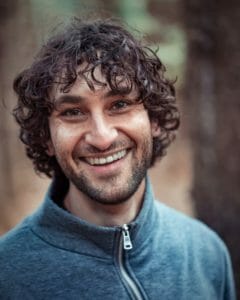
David Krantz is a certified Epigenetic Coach who specializes in boosting cognitive function and helping clients harness their creative and personal power. As a lifelong musician, David sees the various systems of the body as parts of a complex symphony. And, as a coach, he excels at fine-tuning those parts to create resonant harmonious health. David also serves as Director of Psychoacoustics at Apeiron Center in Asheville, NC where he develops sound-based tools for better mood, energy, and focus. Additionally, he’s an expert in the pharmacogenetics of the endocannabinoid system and has developed a proprietary genetic test for looking at individual response to cannabinoids. A biohacker by training and artist by nature, David enjoys working with others who have a deep passion for enjoying life.

